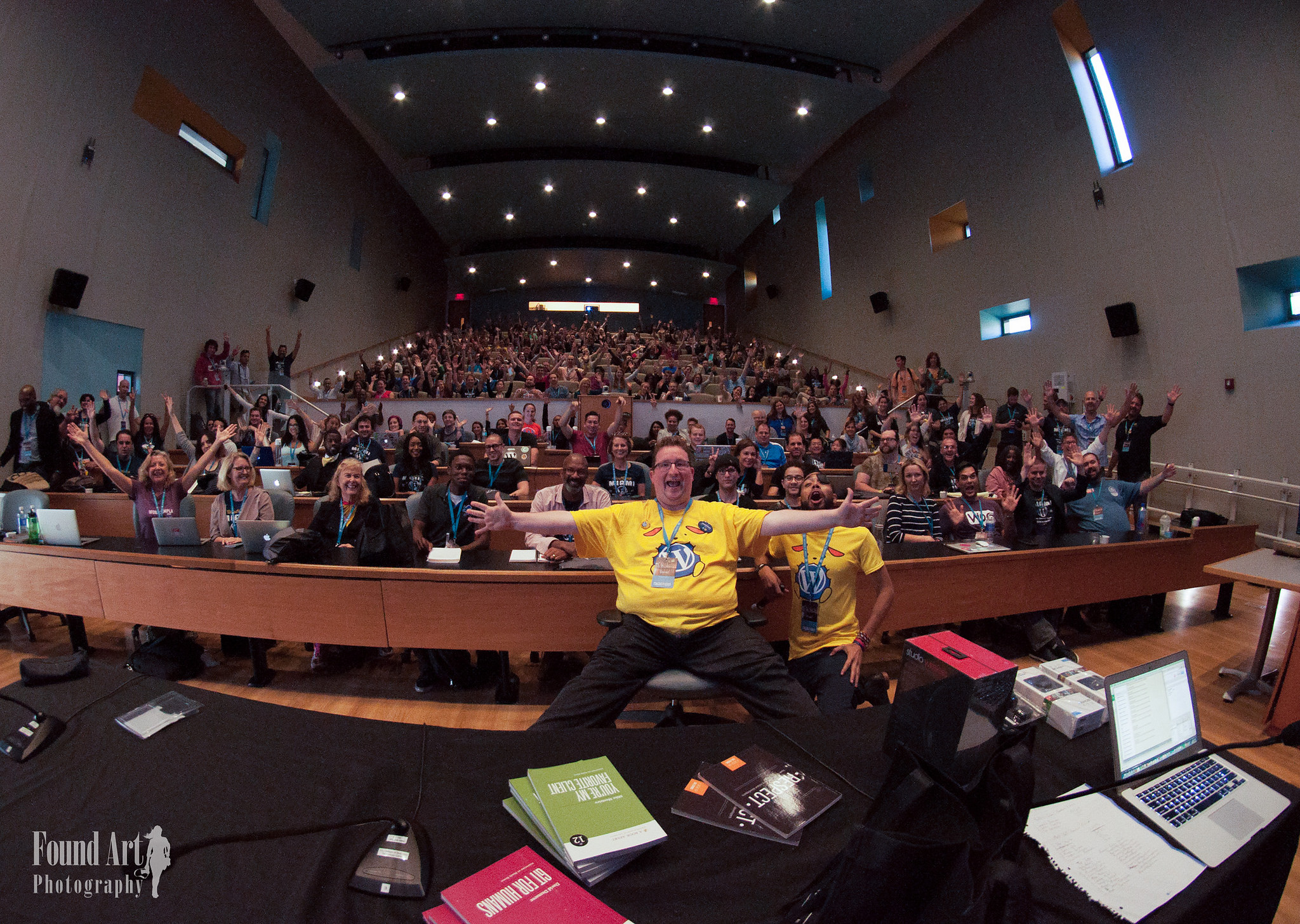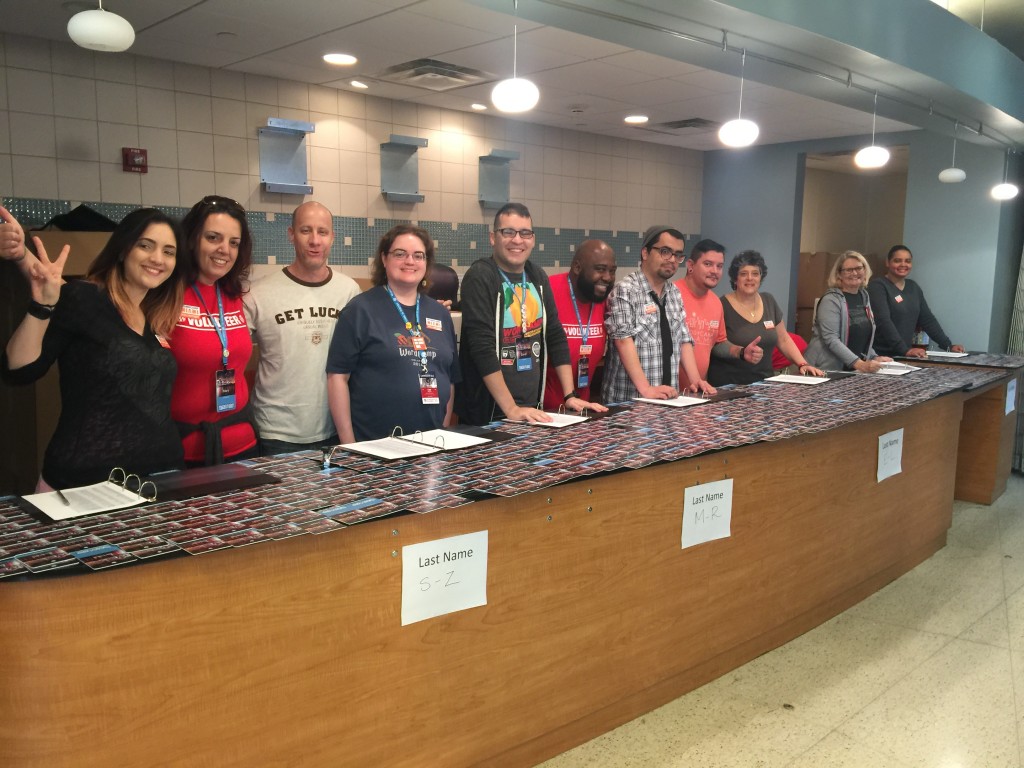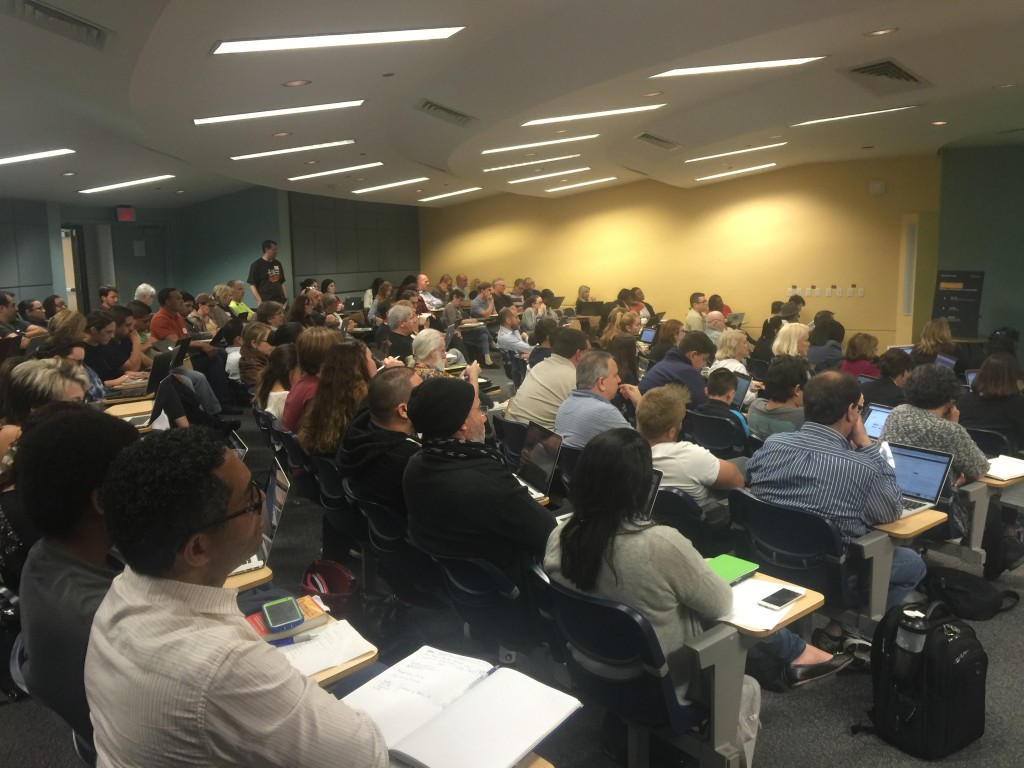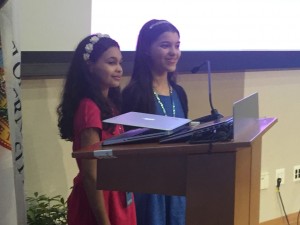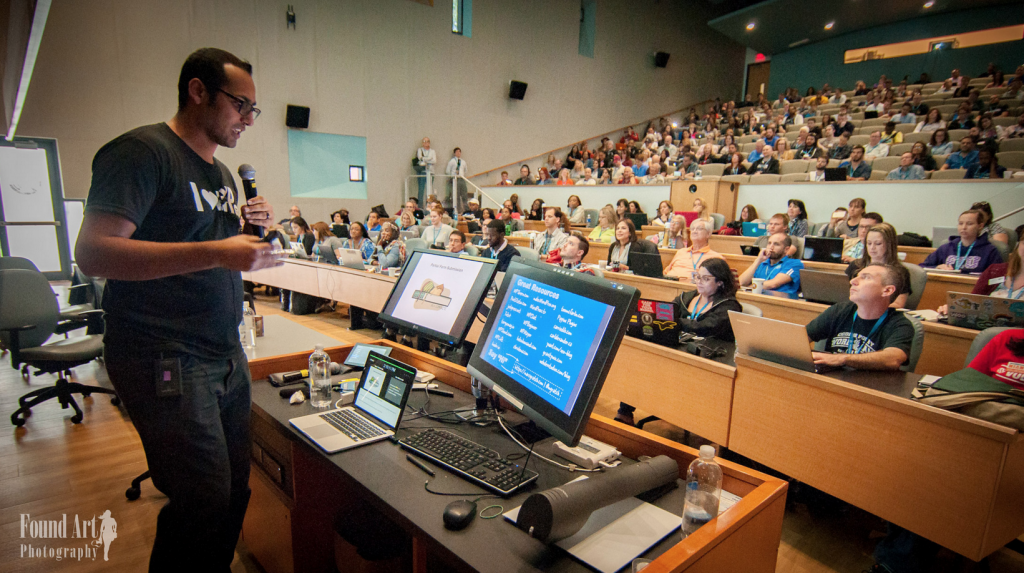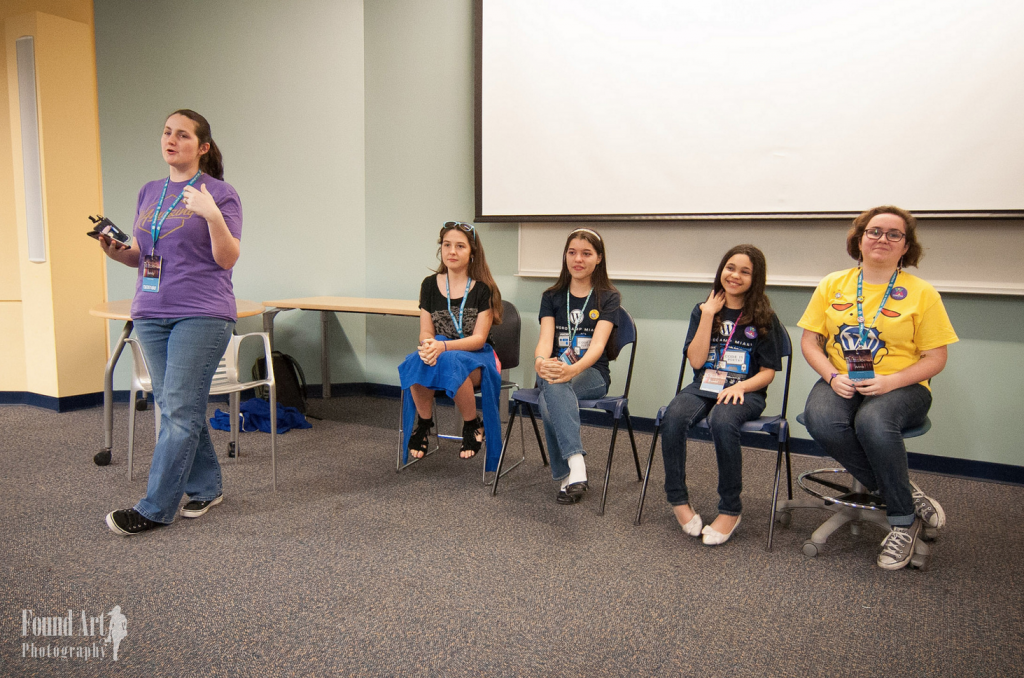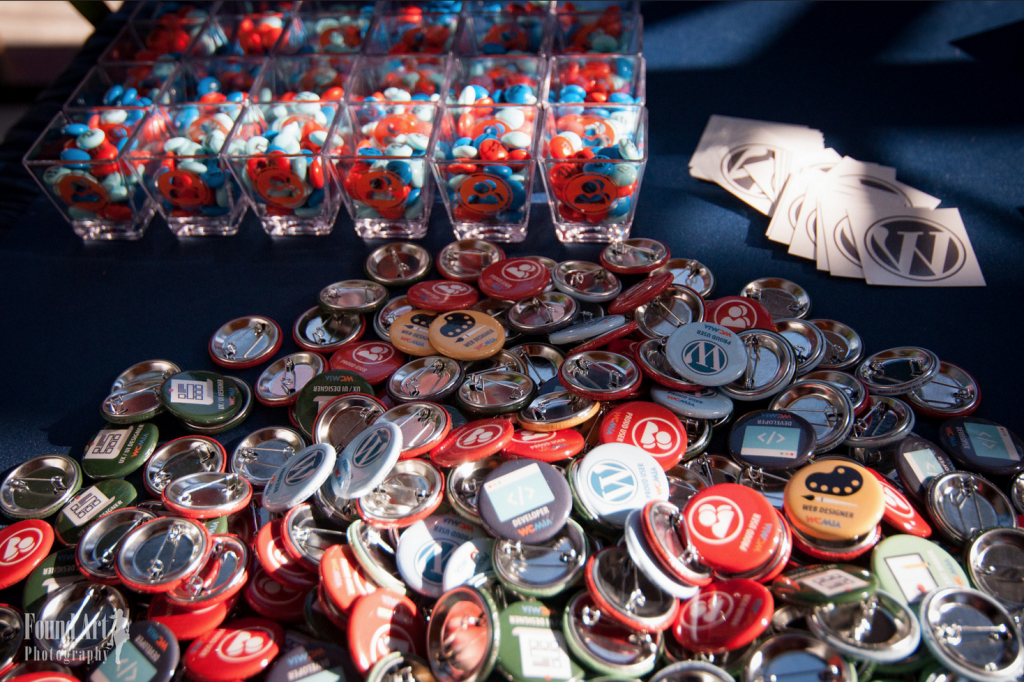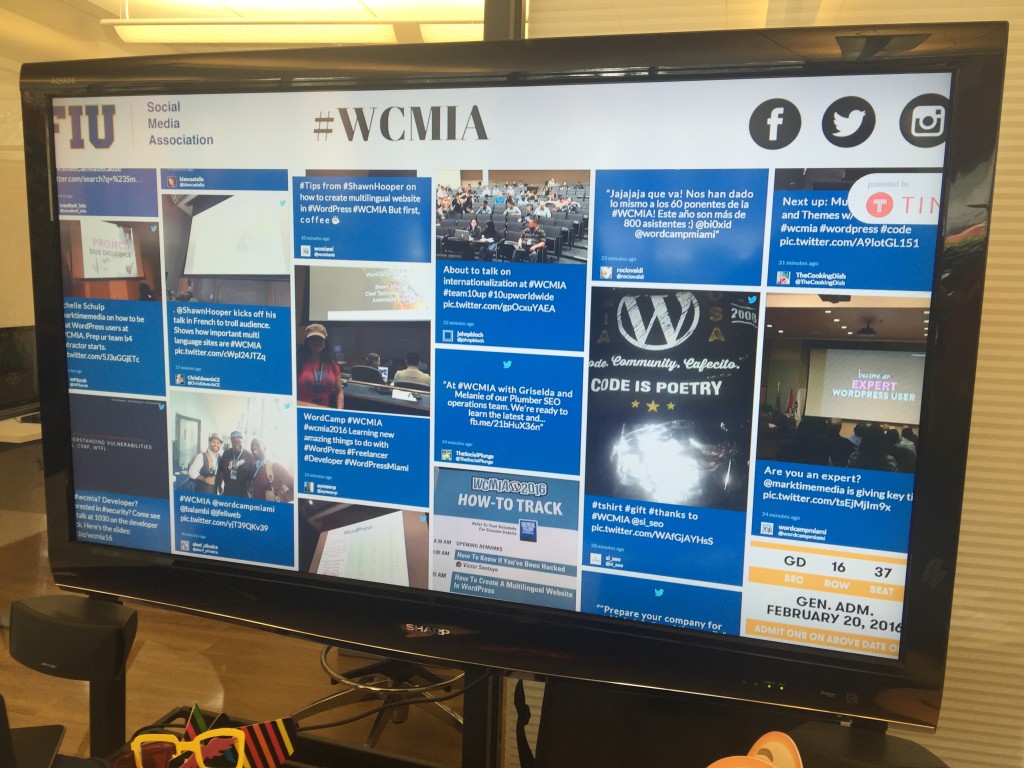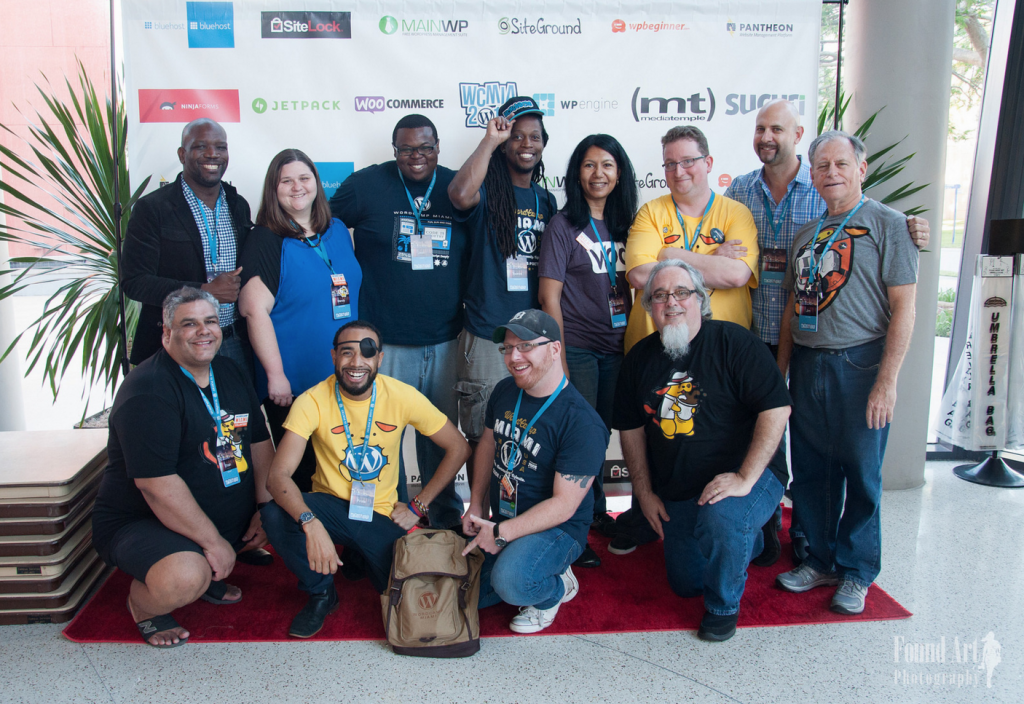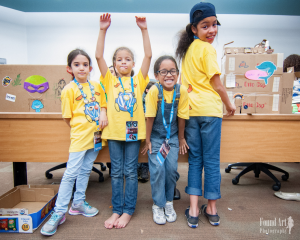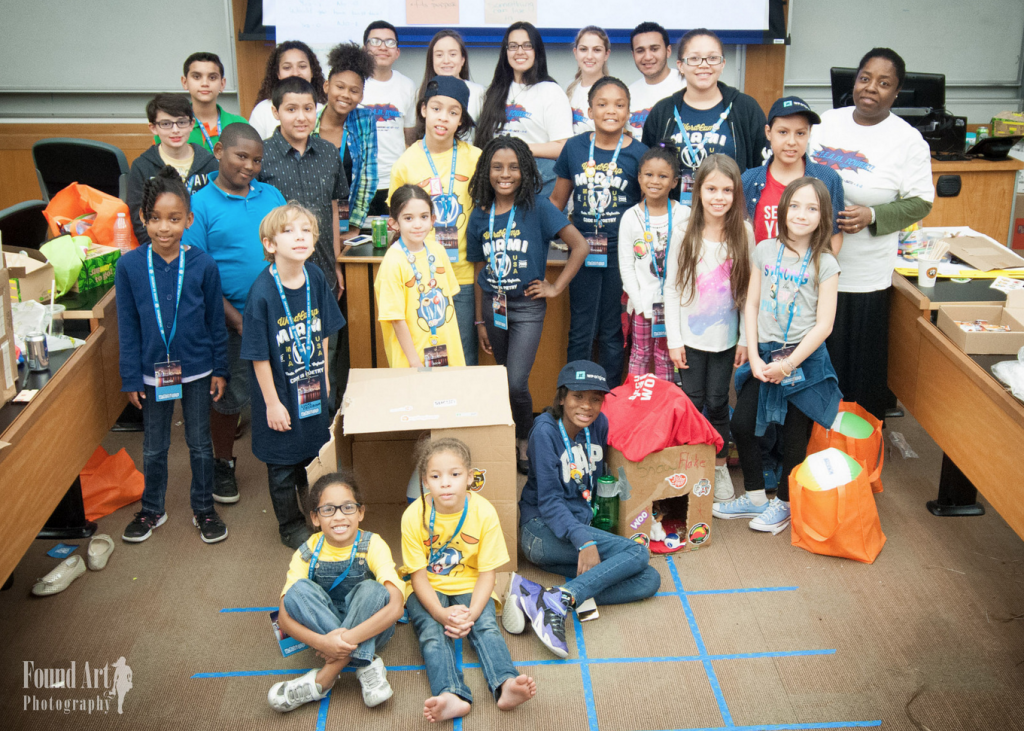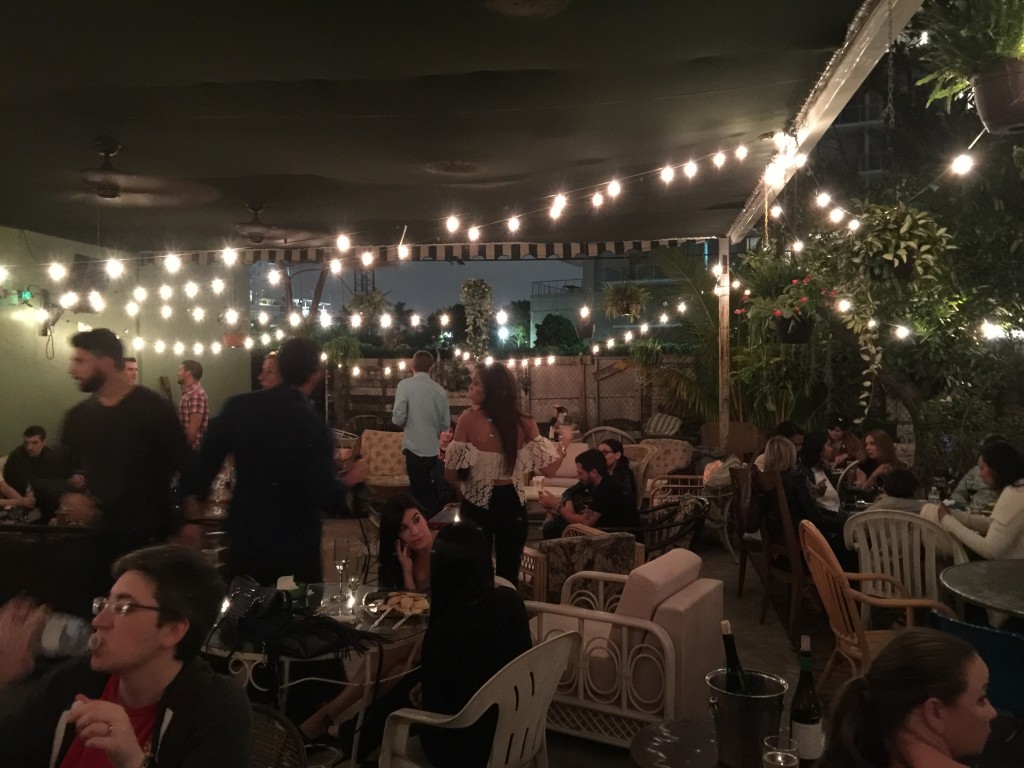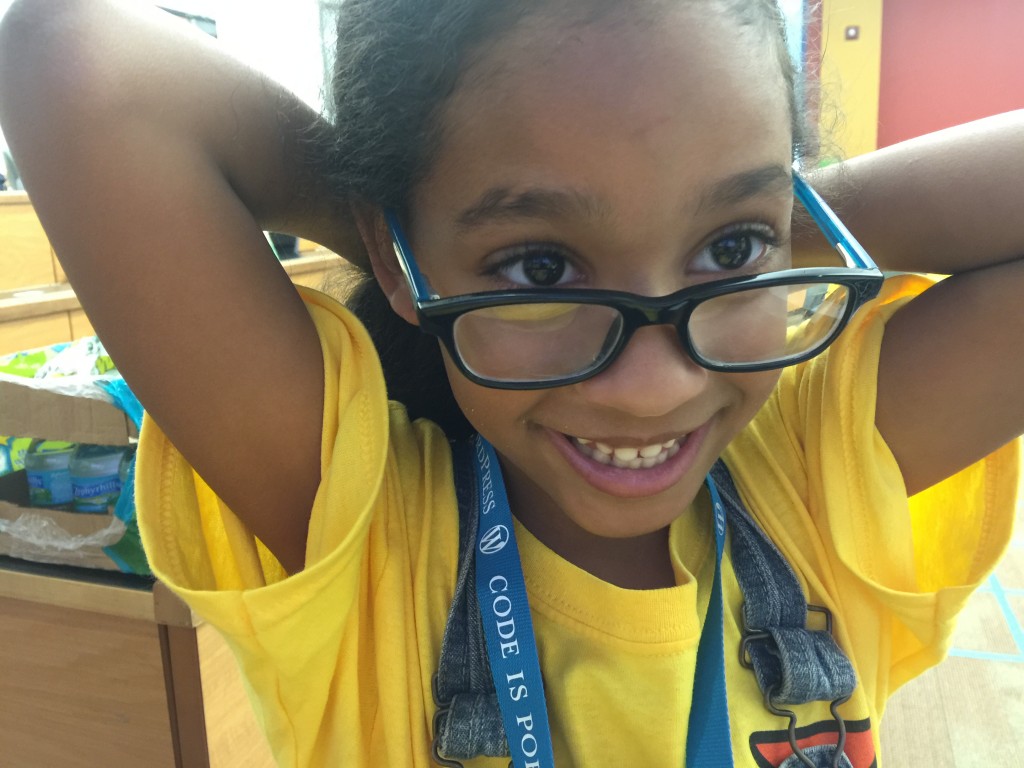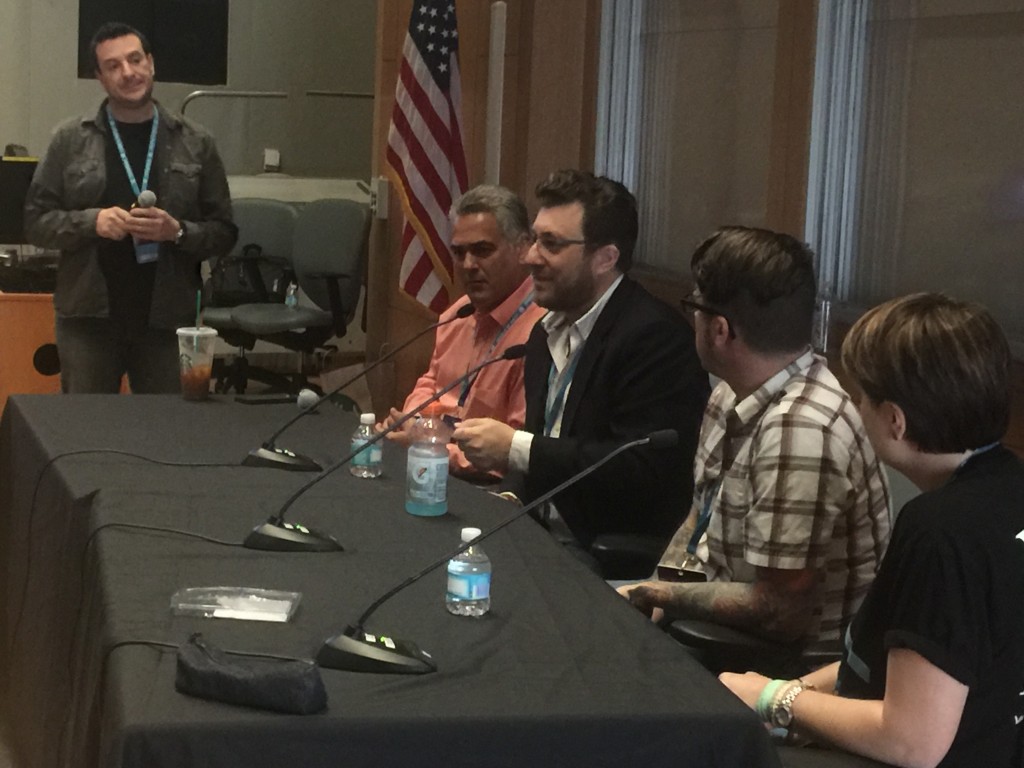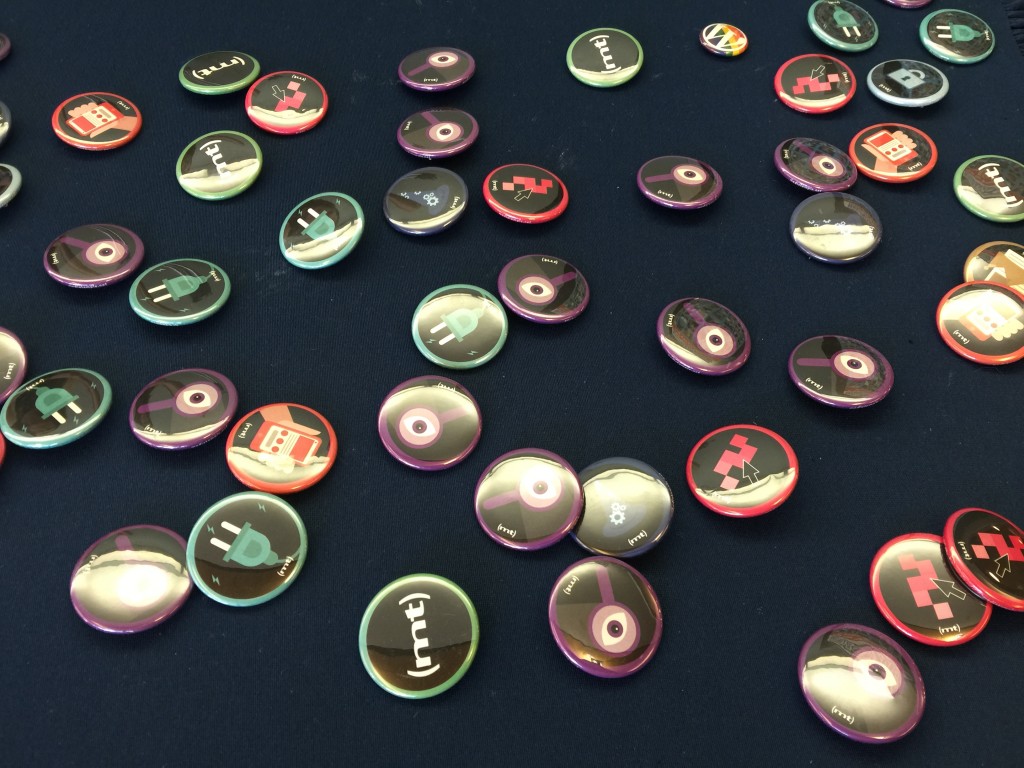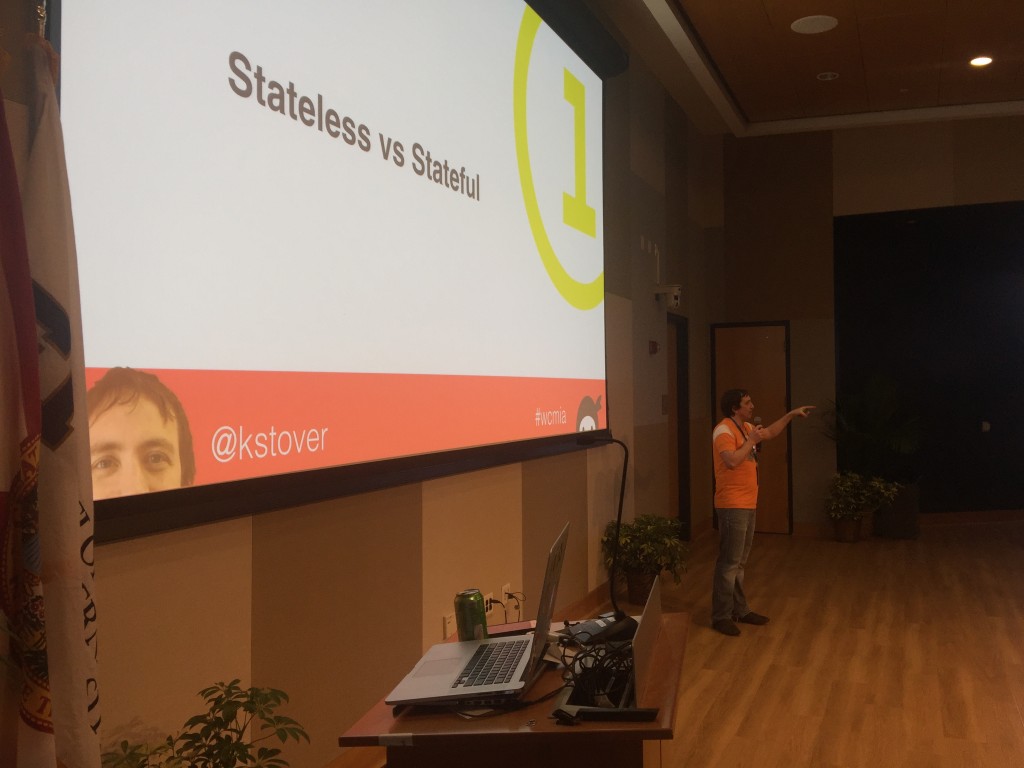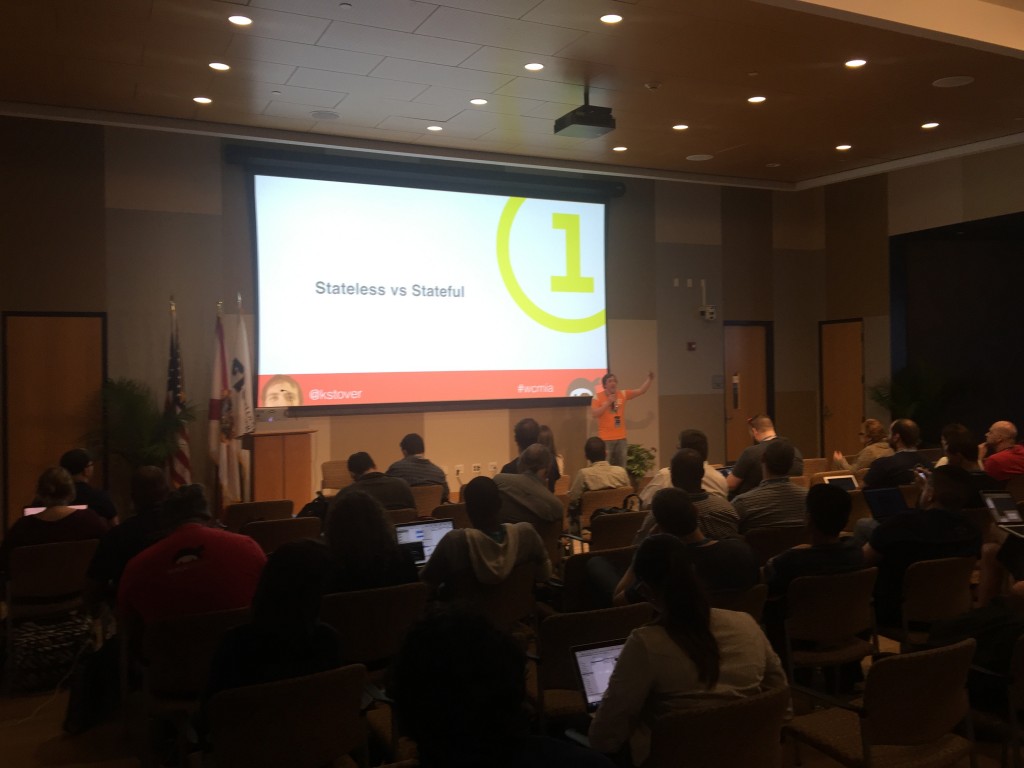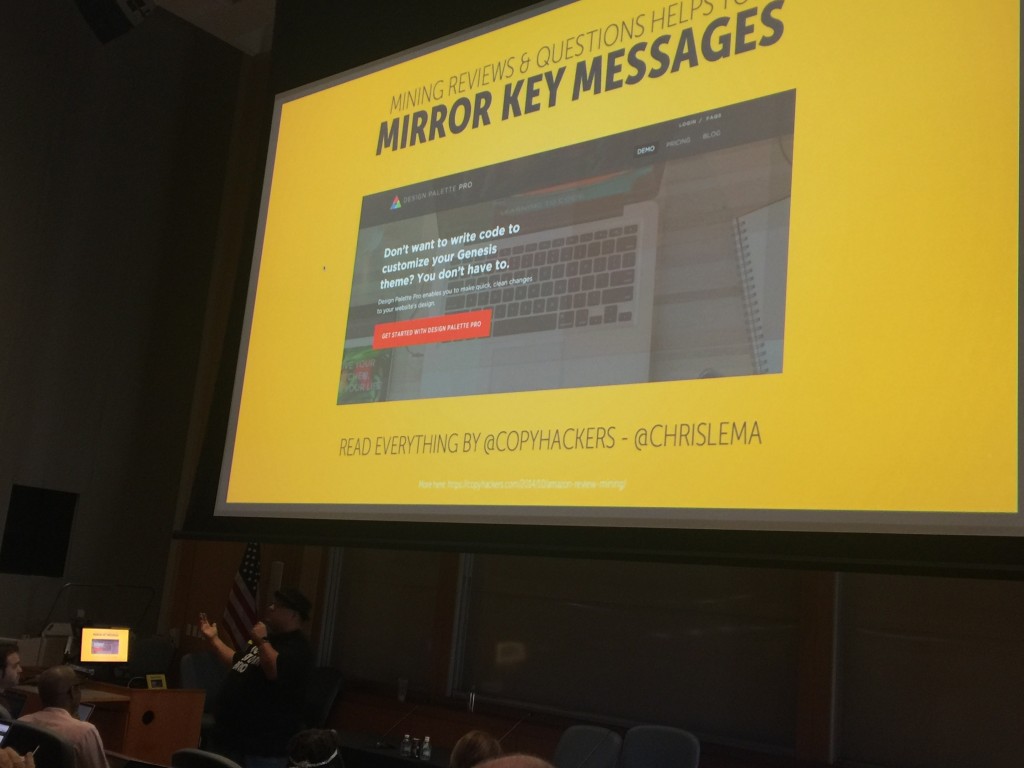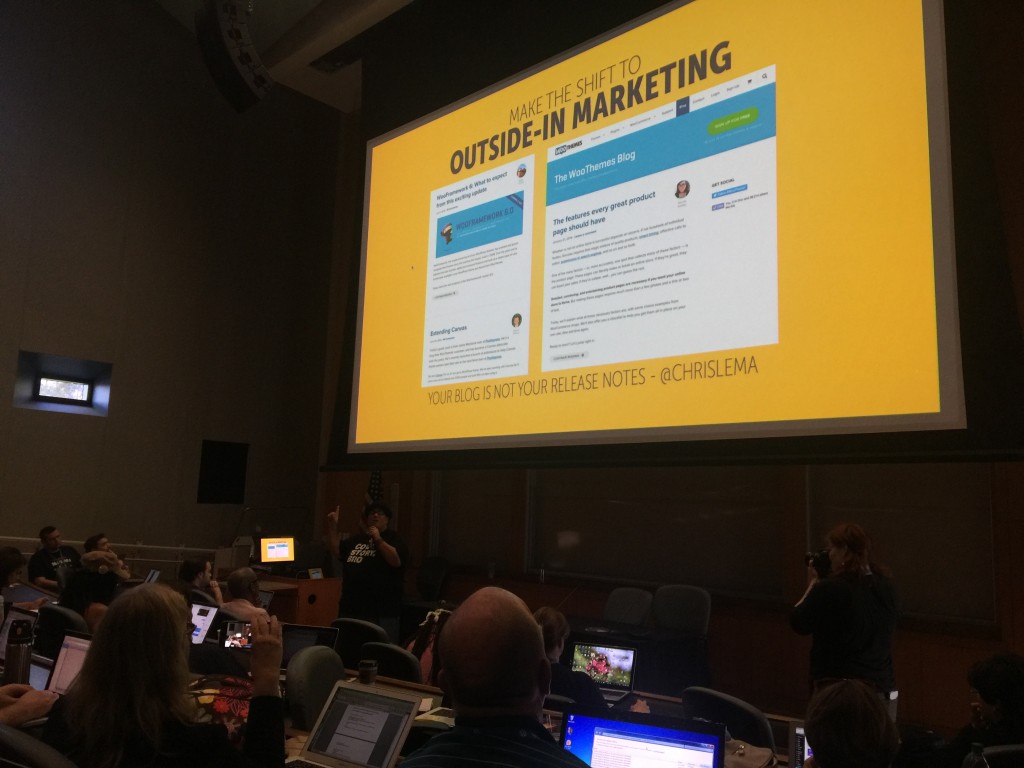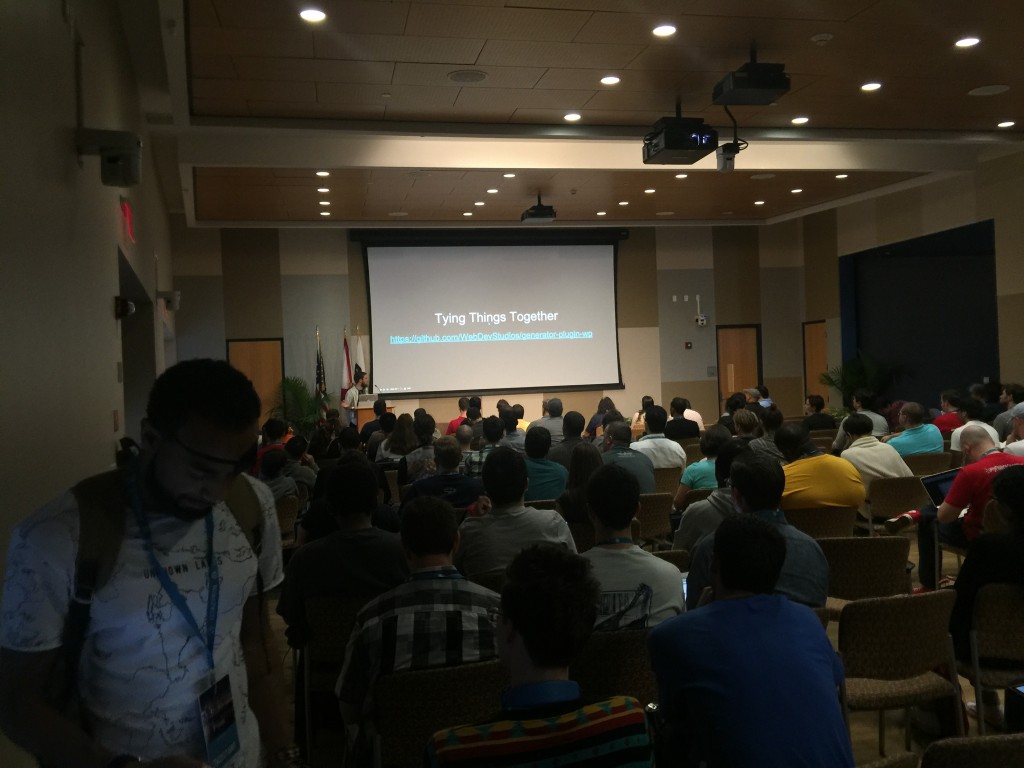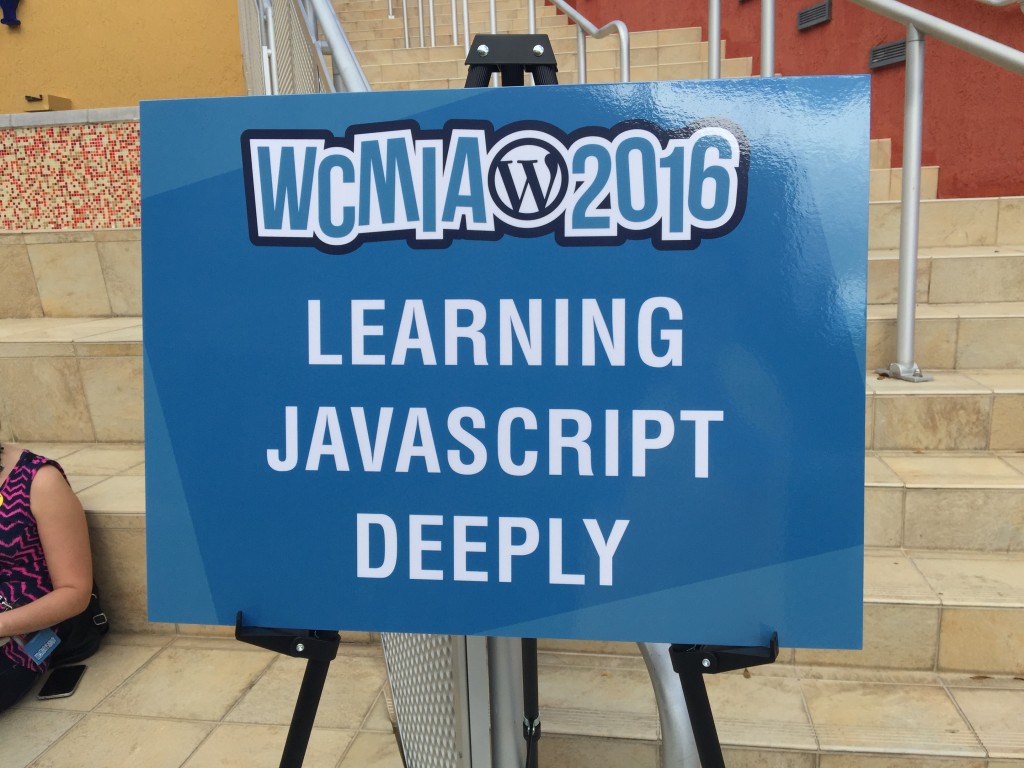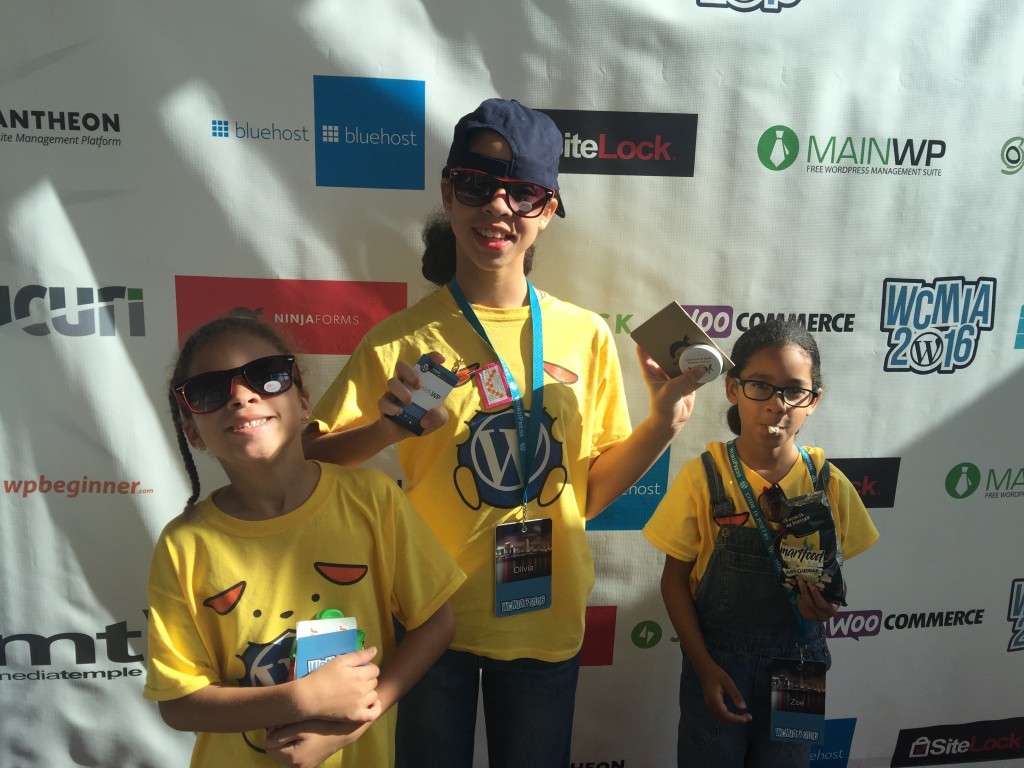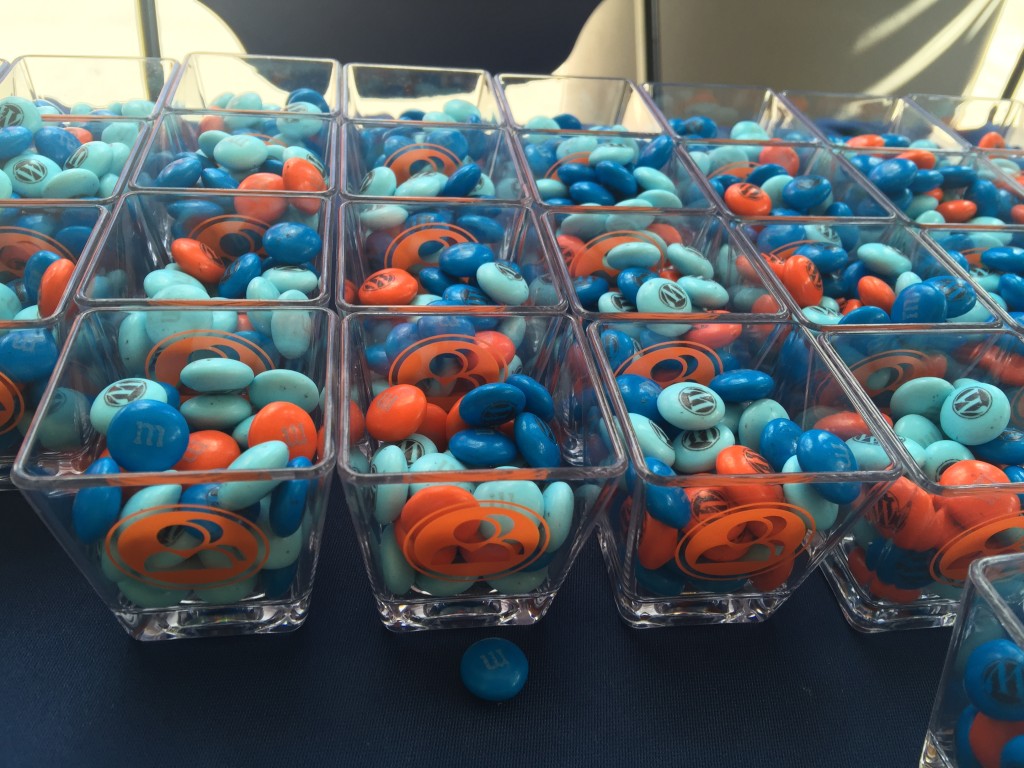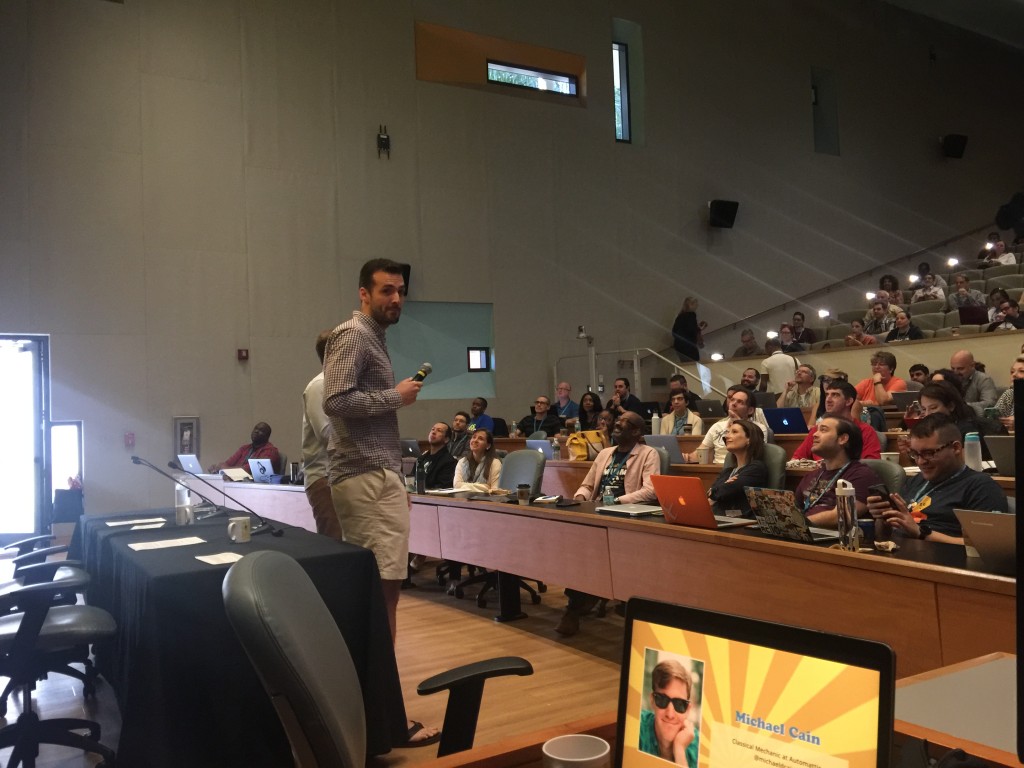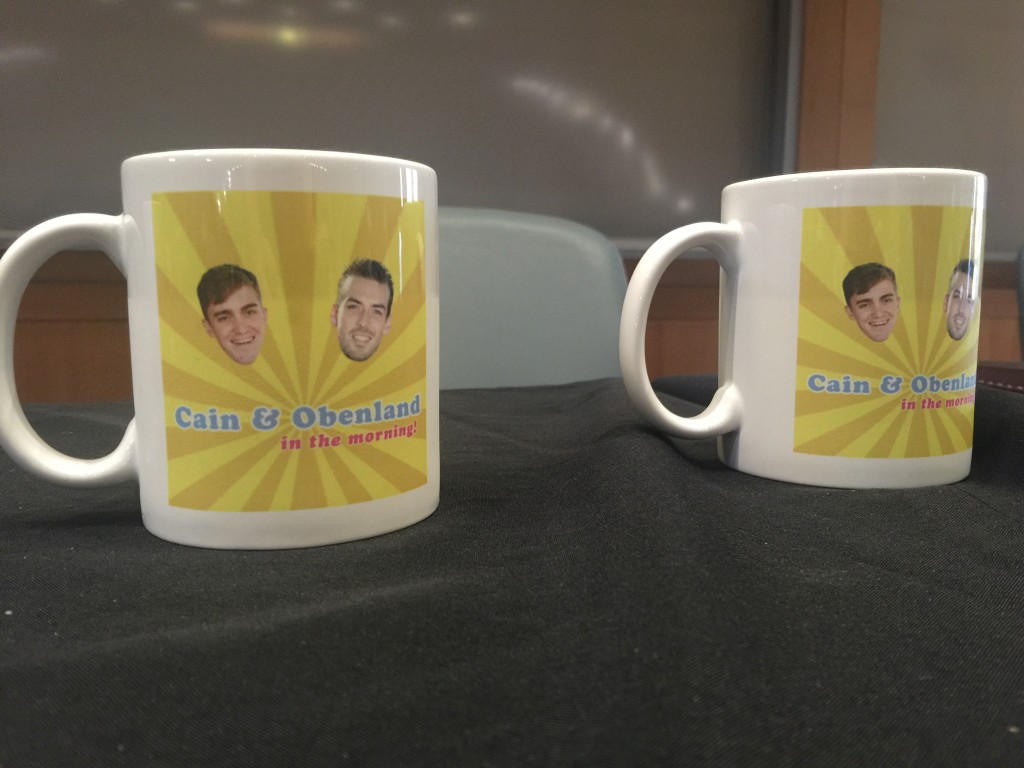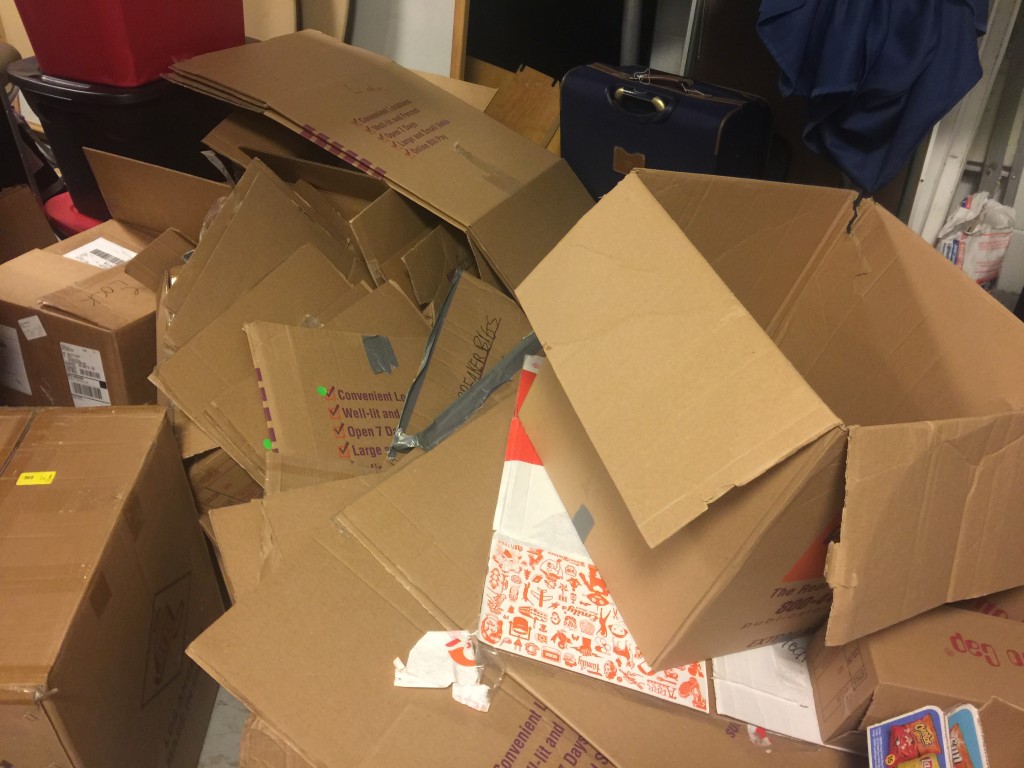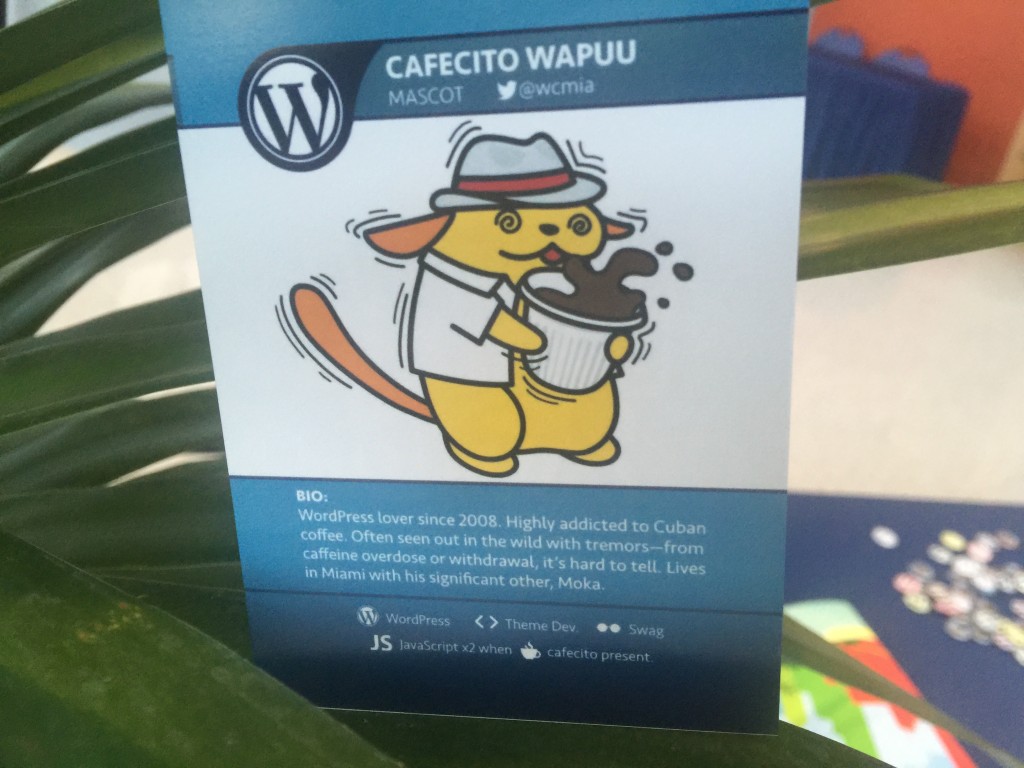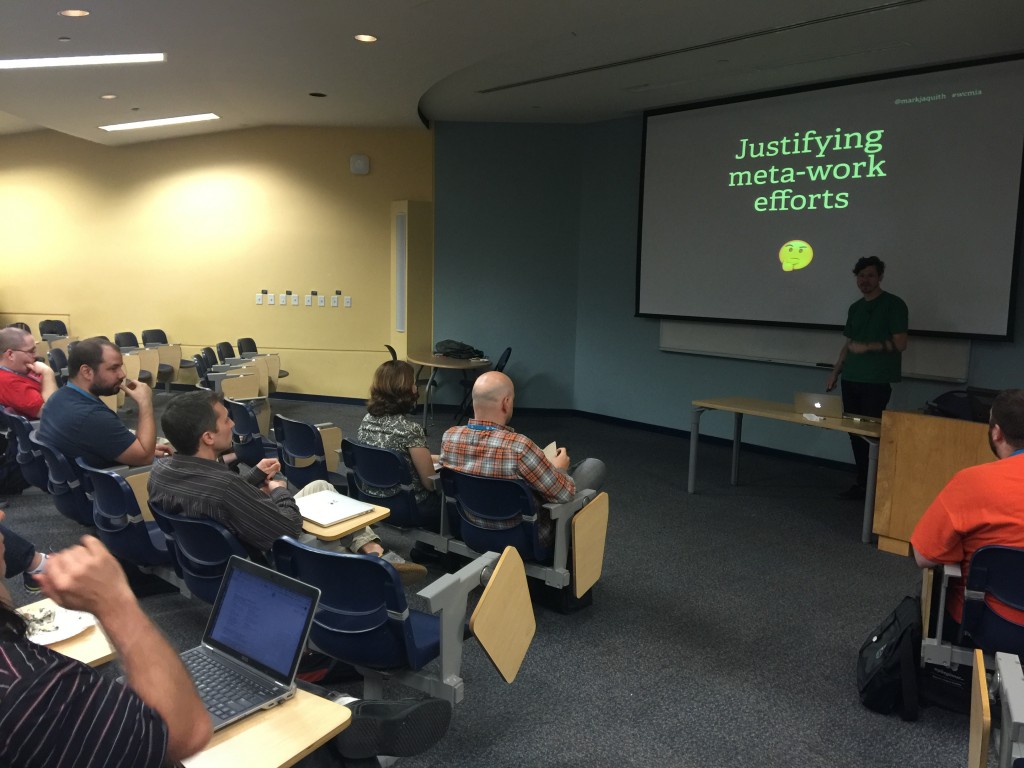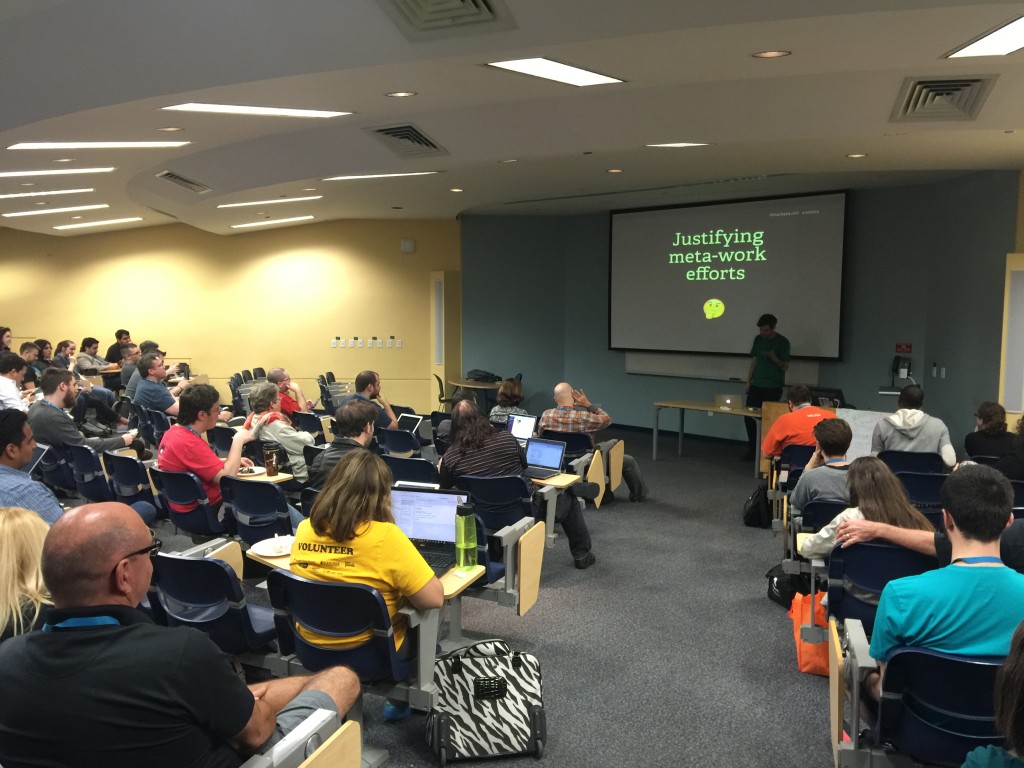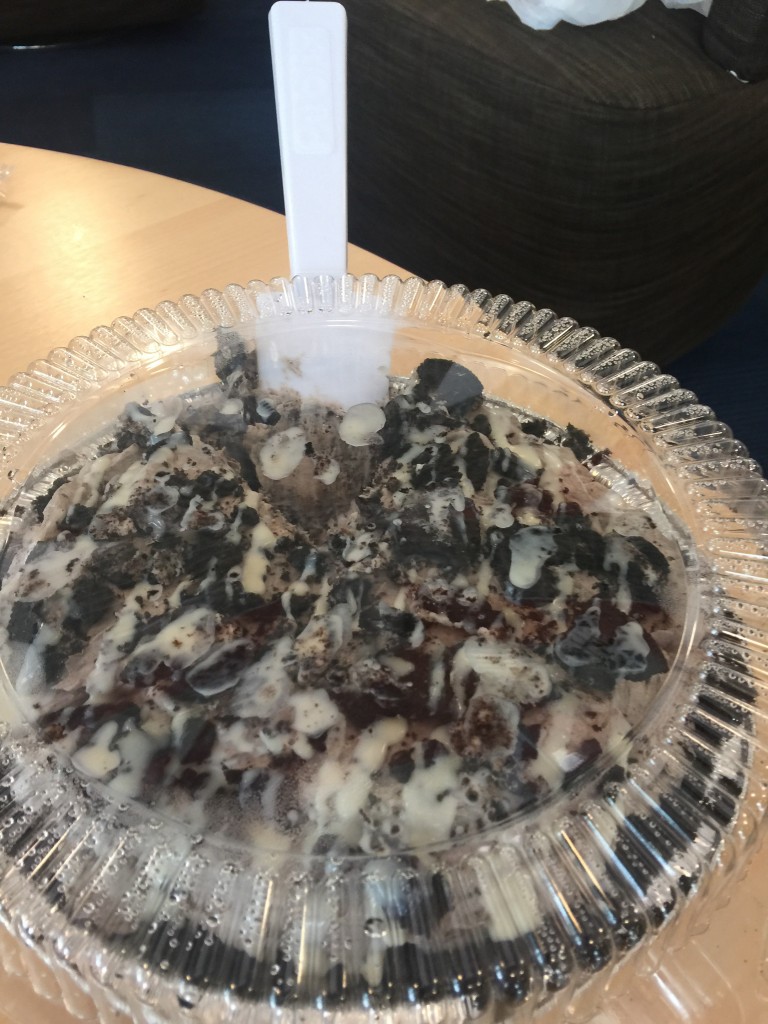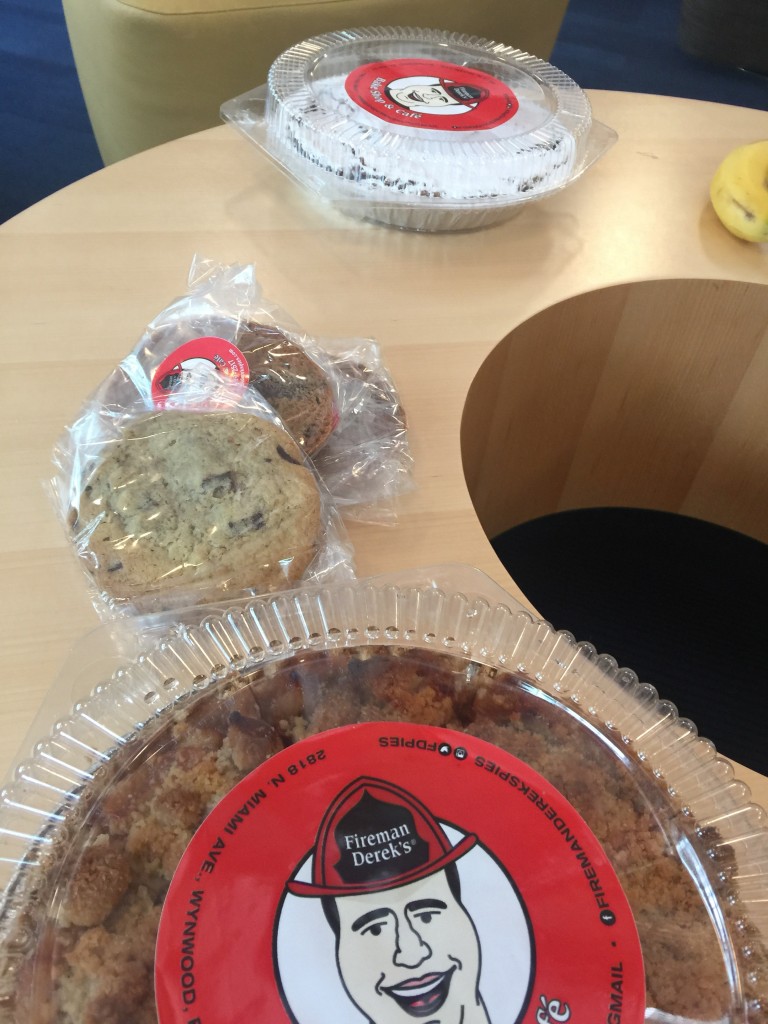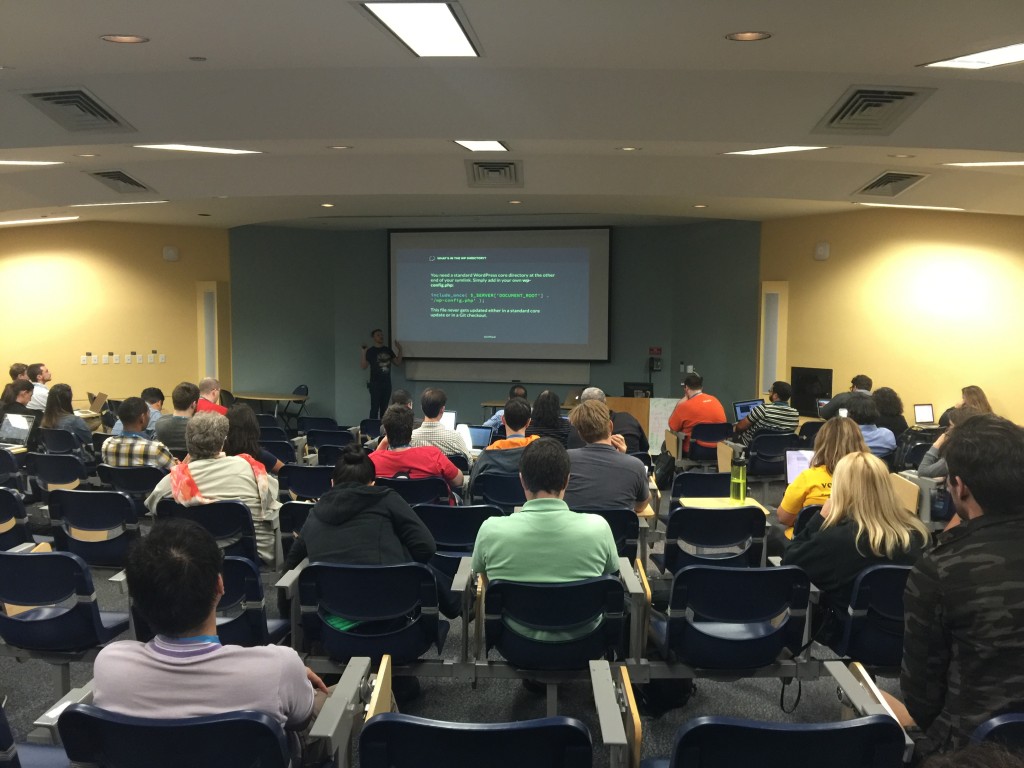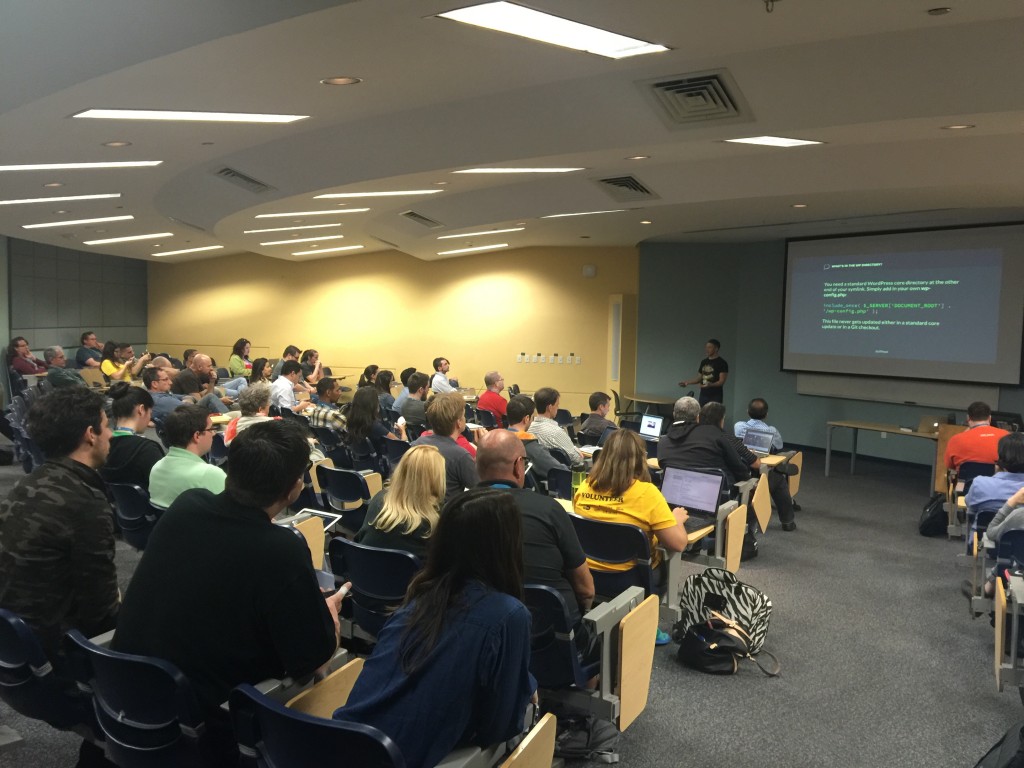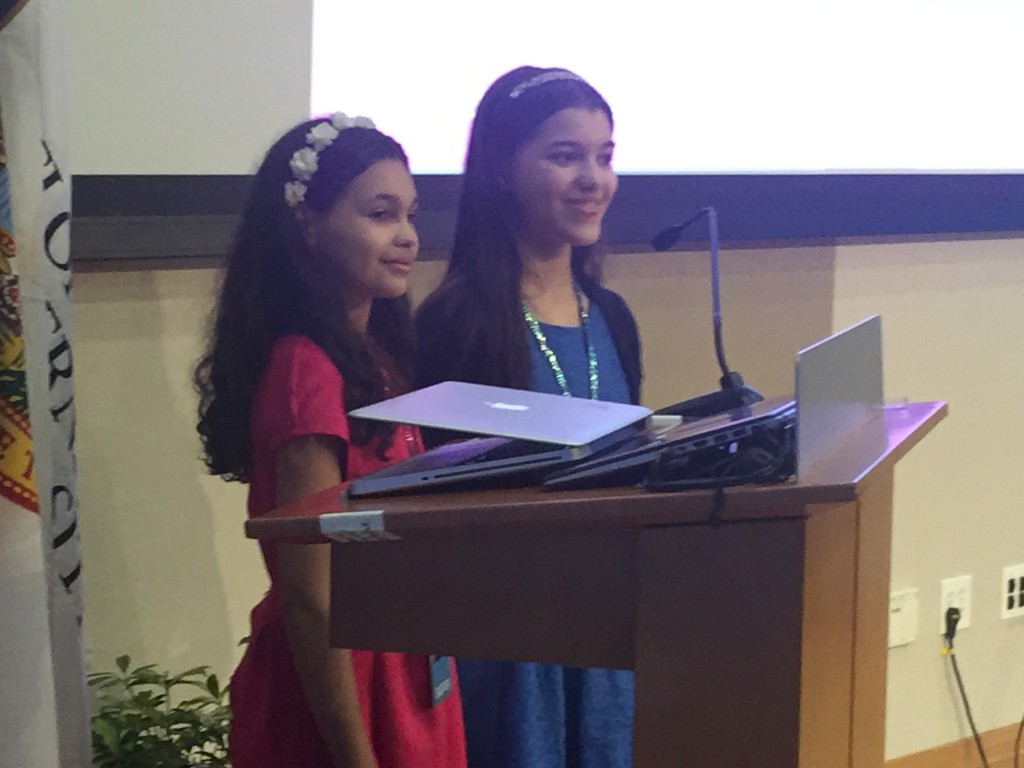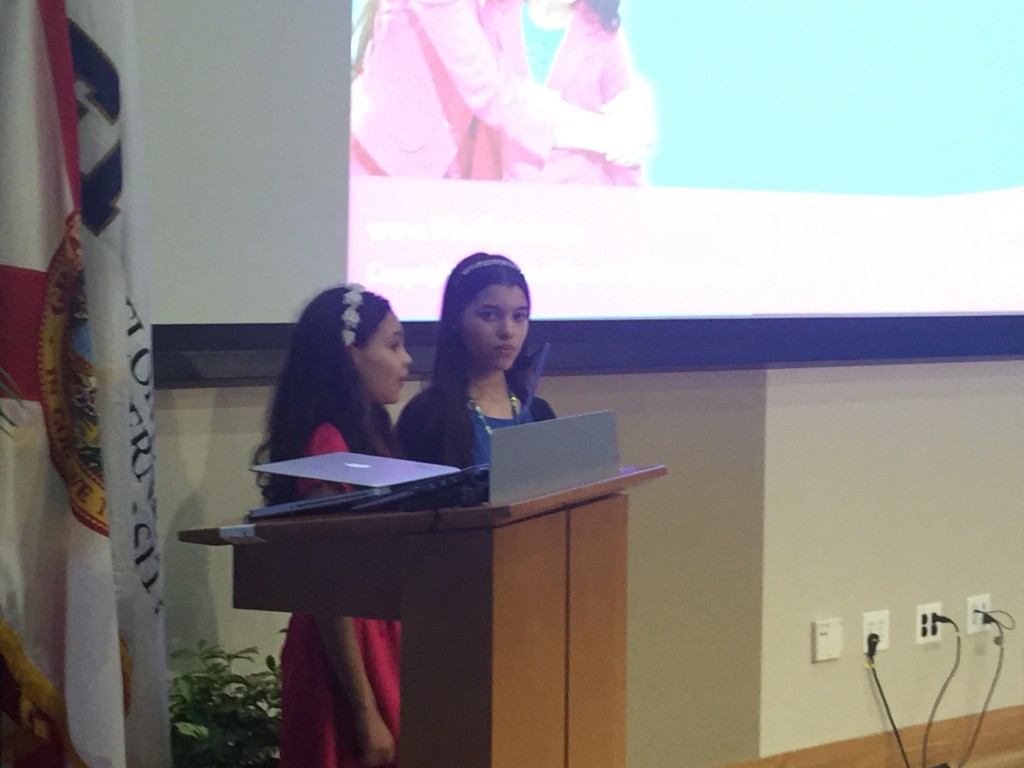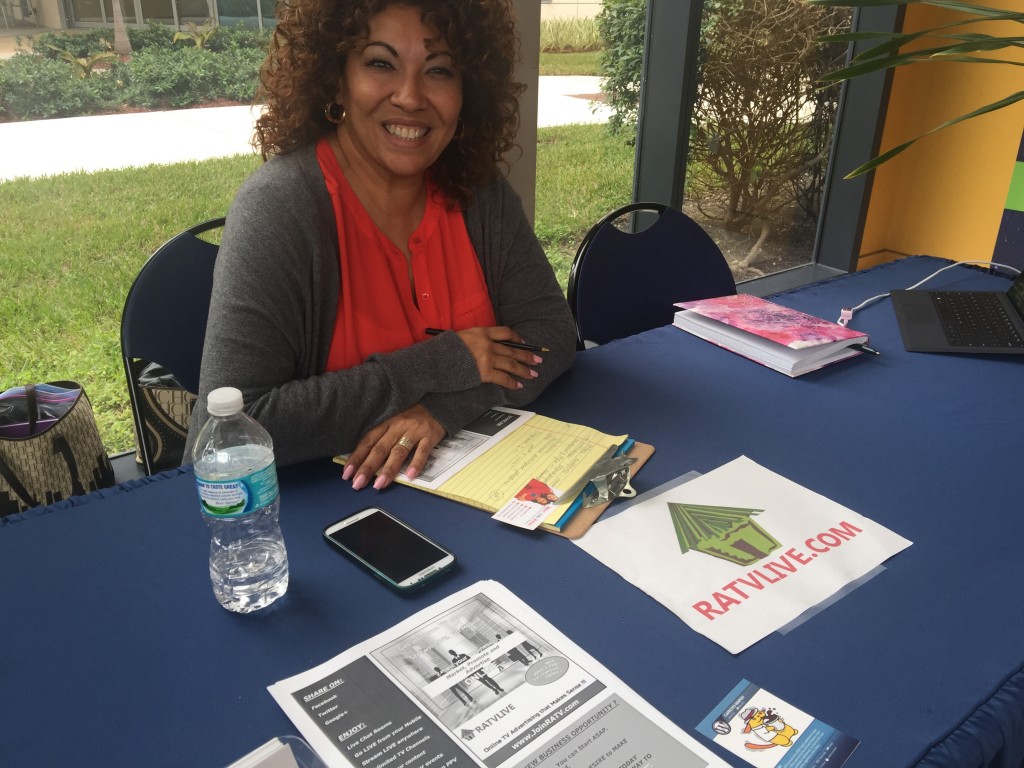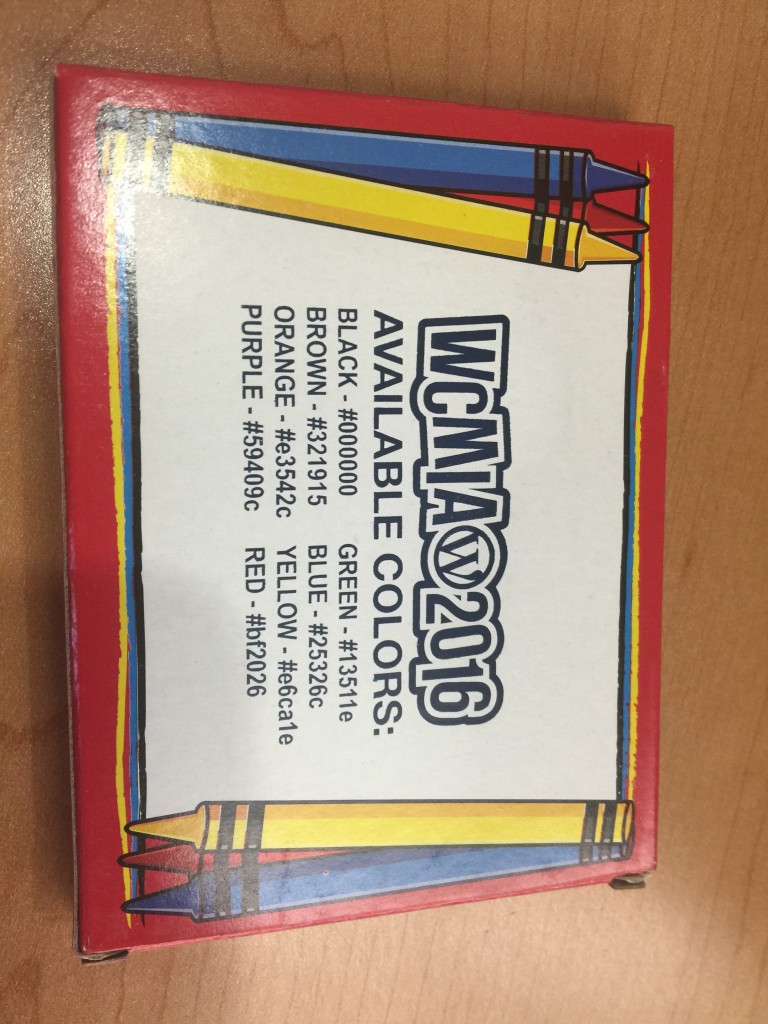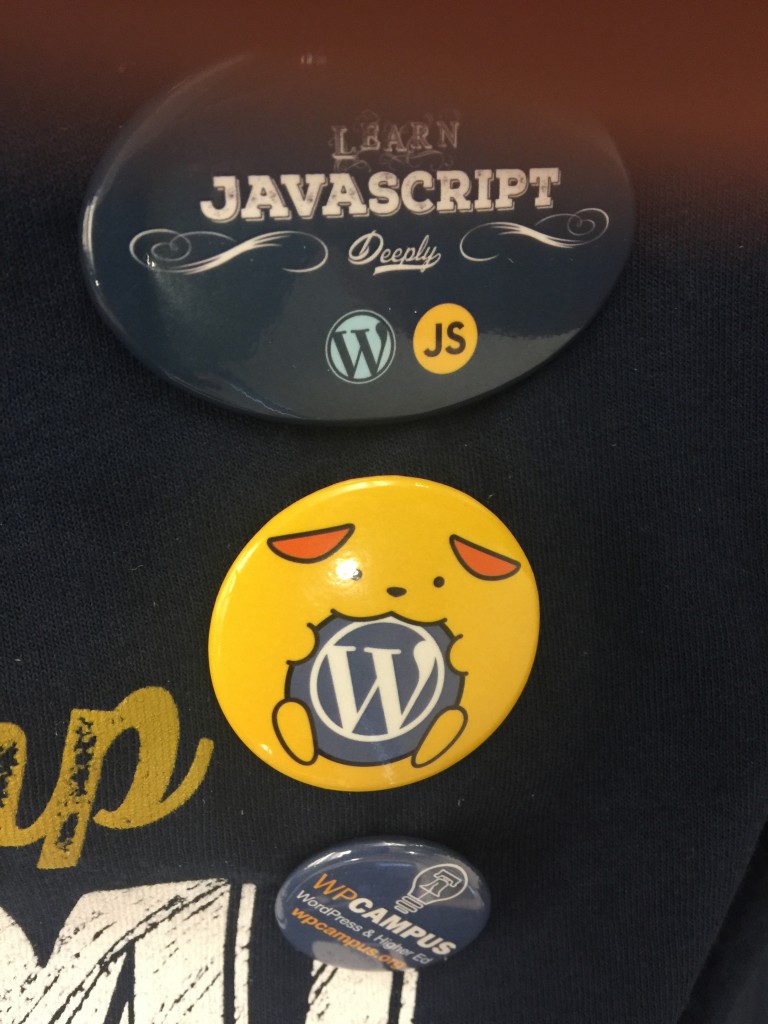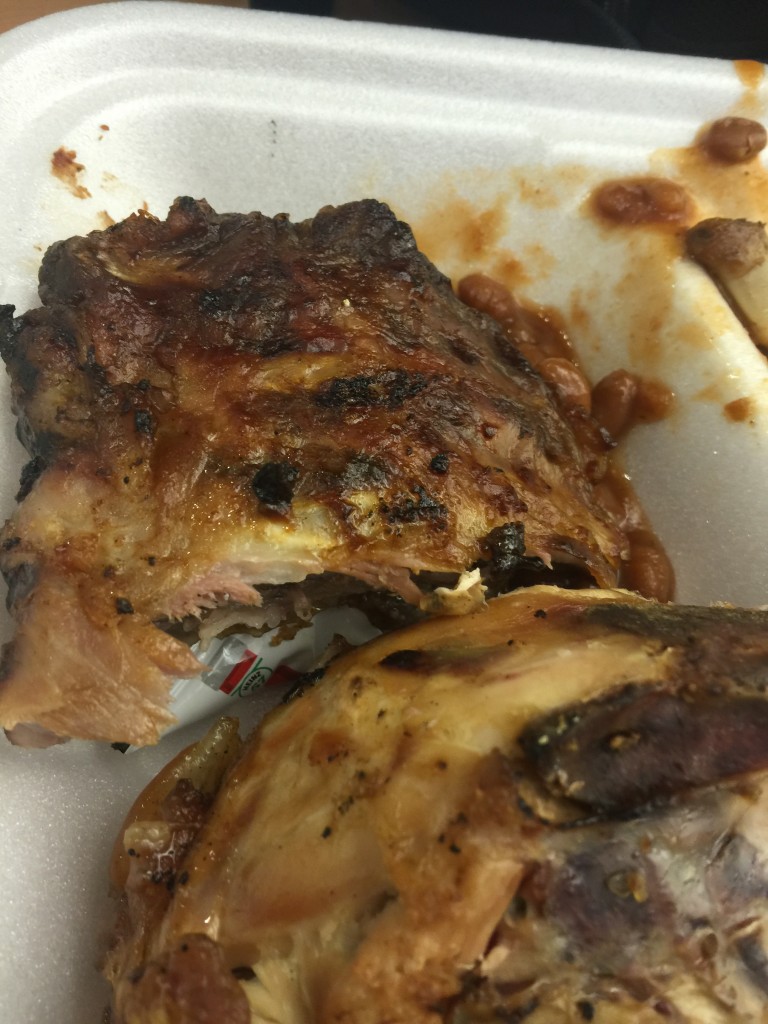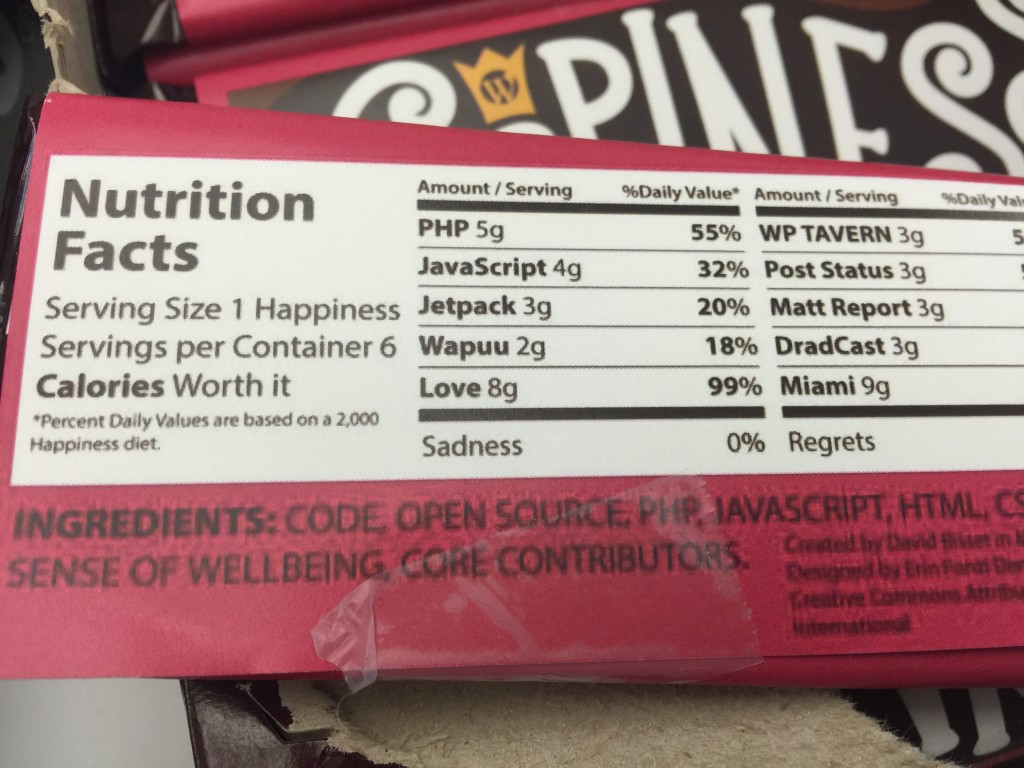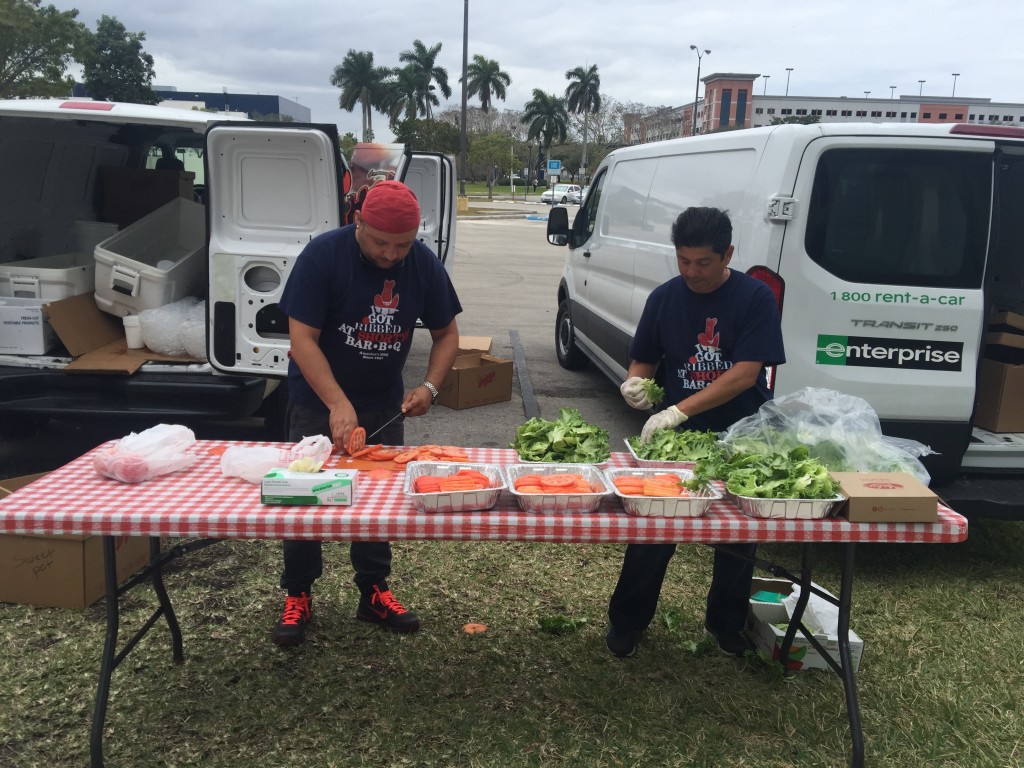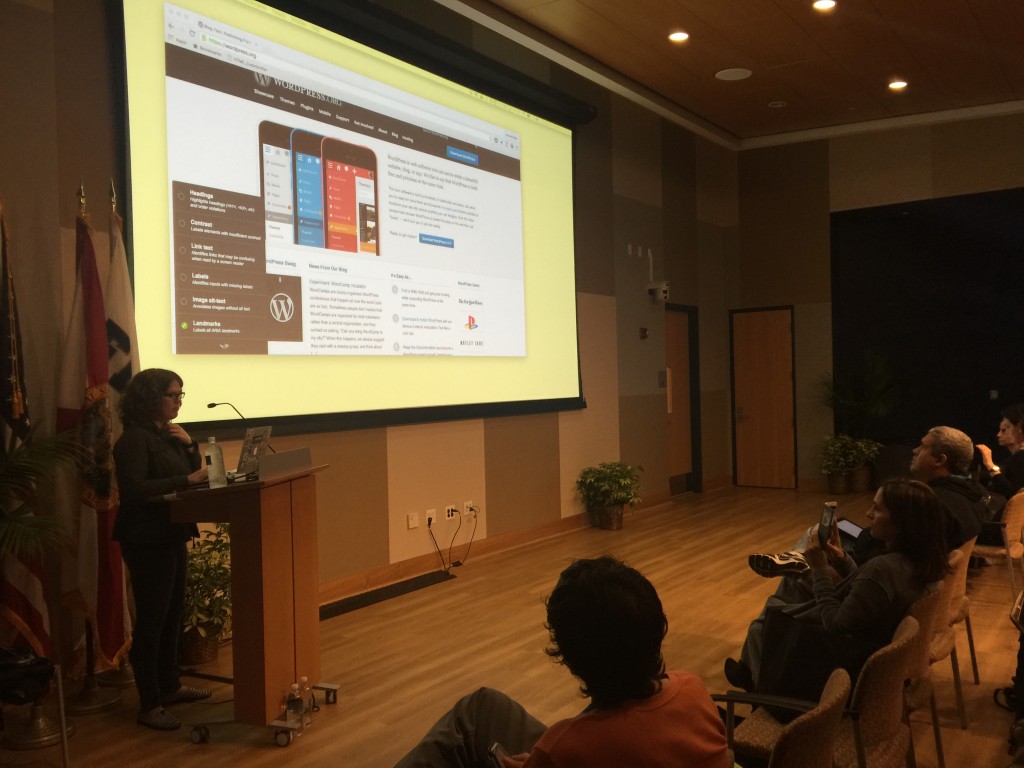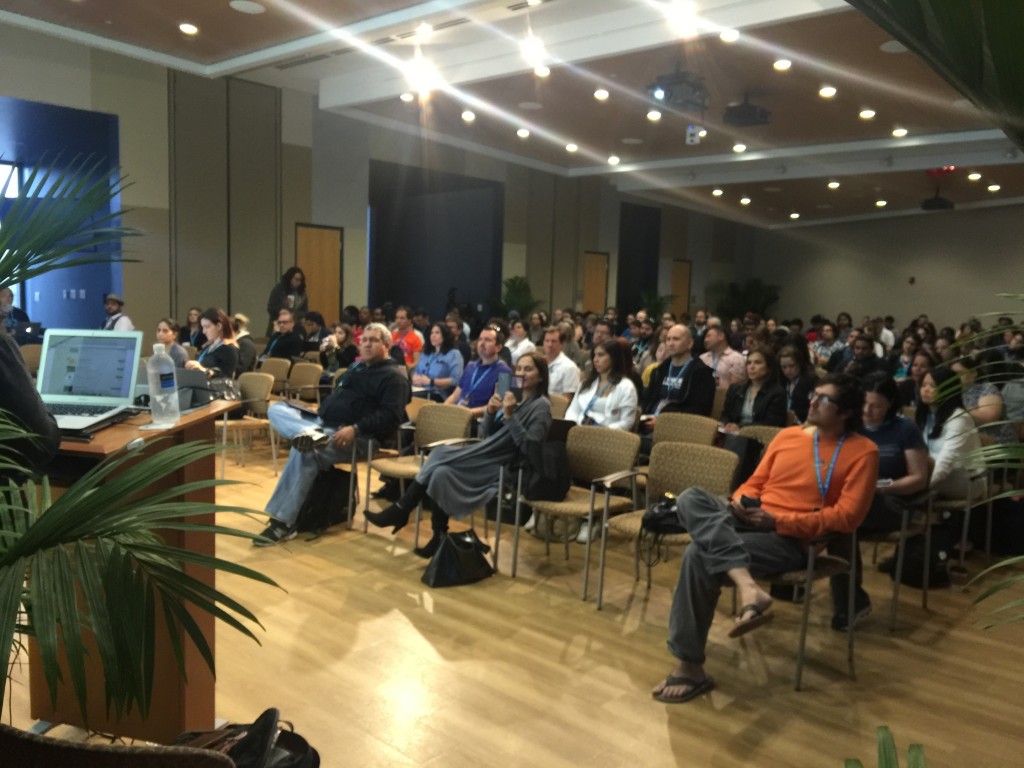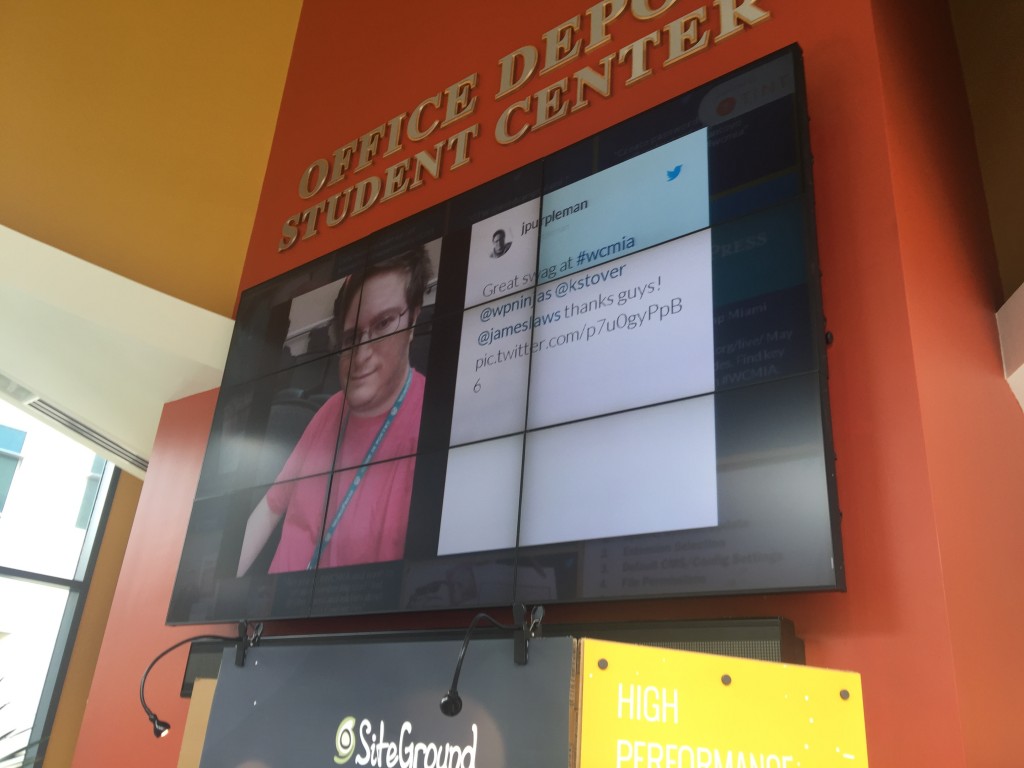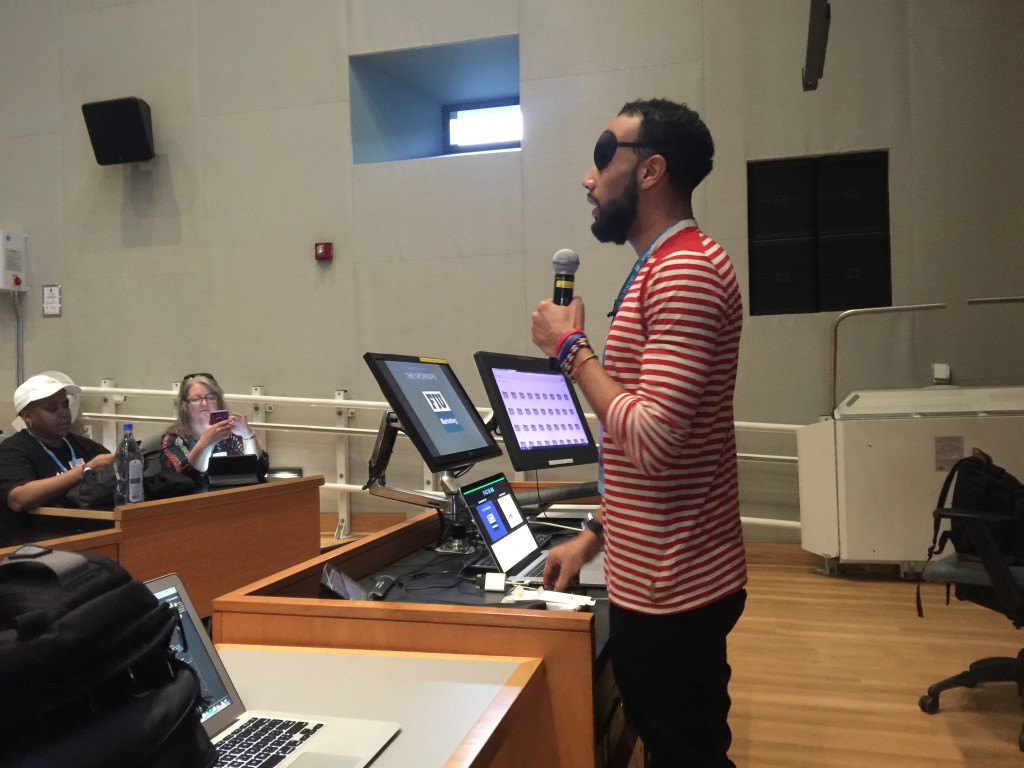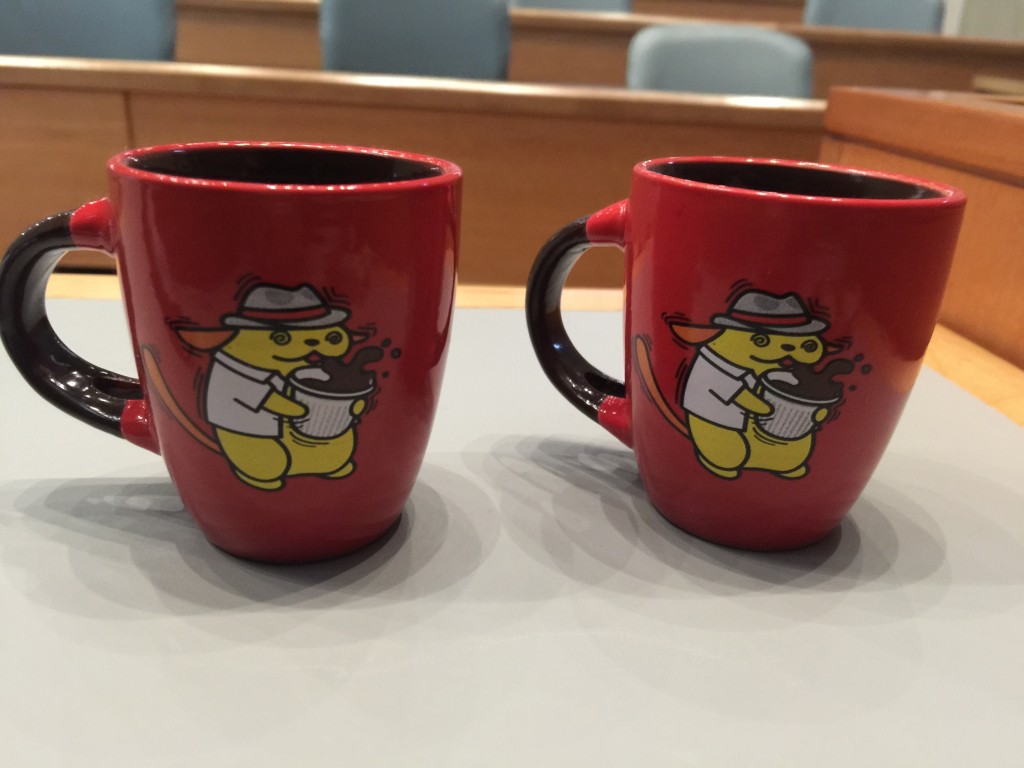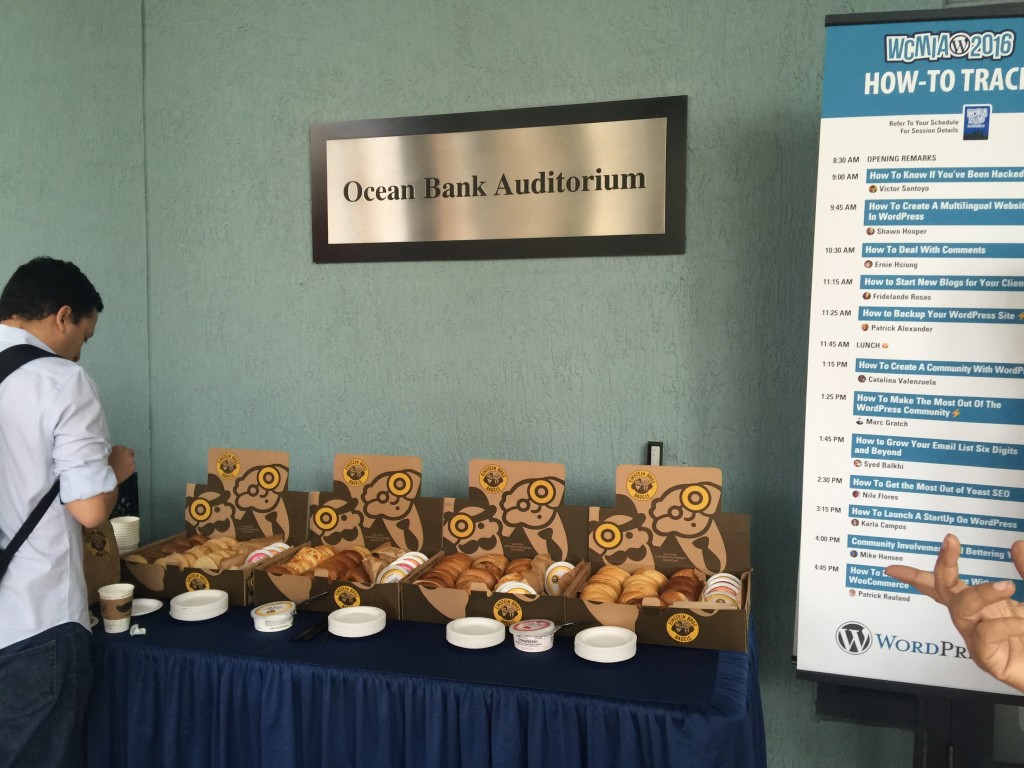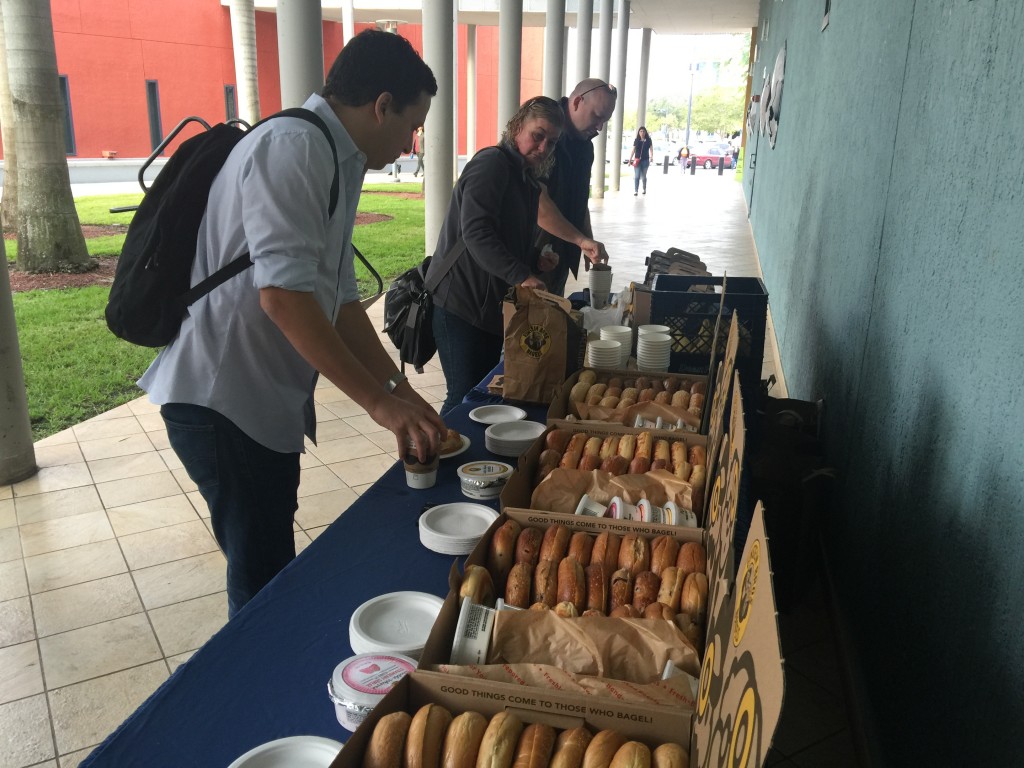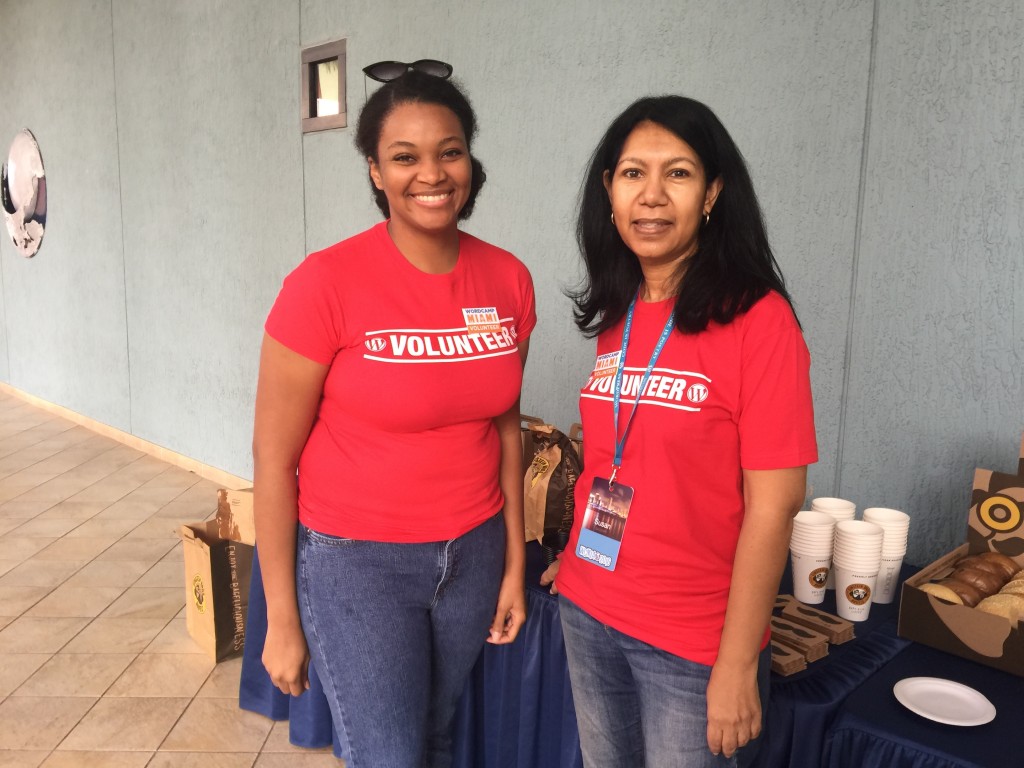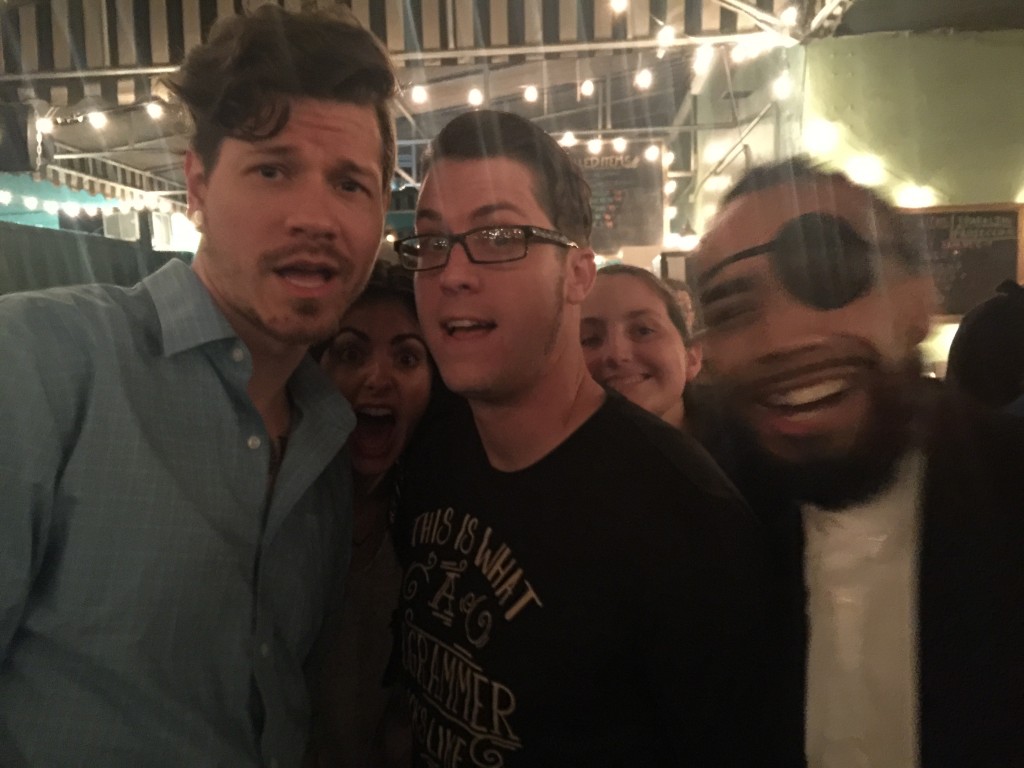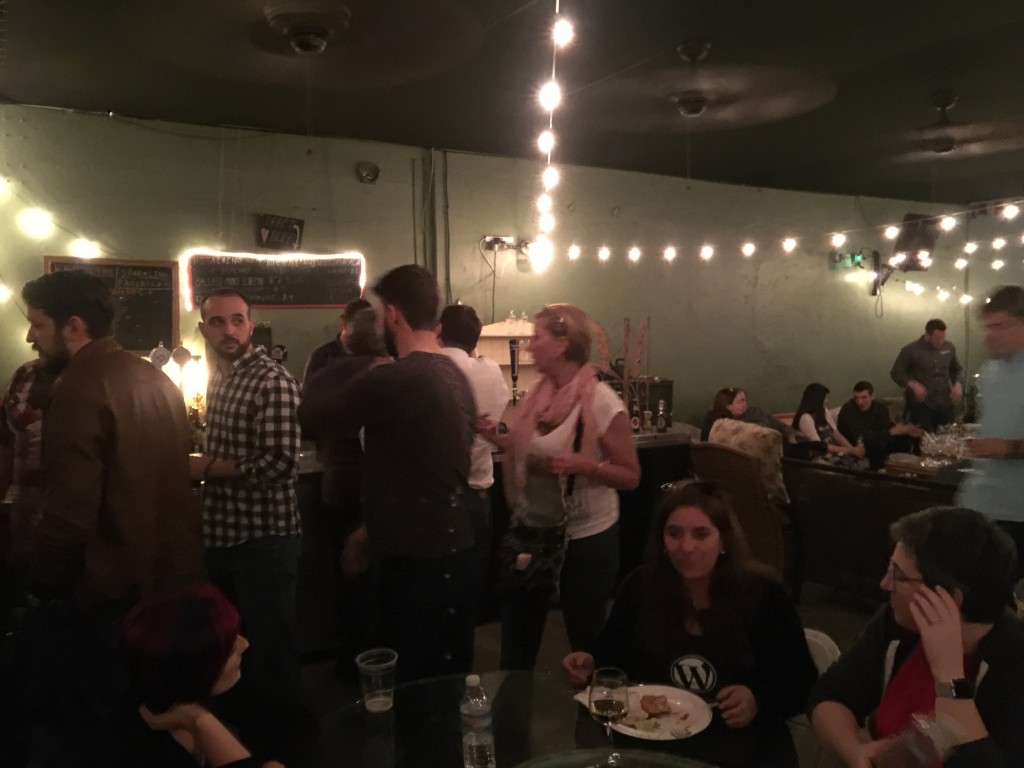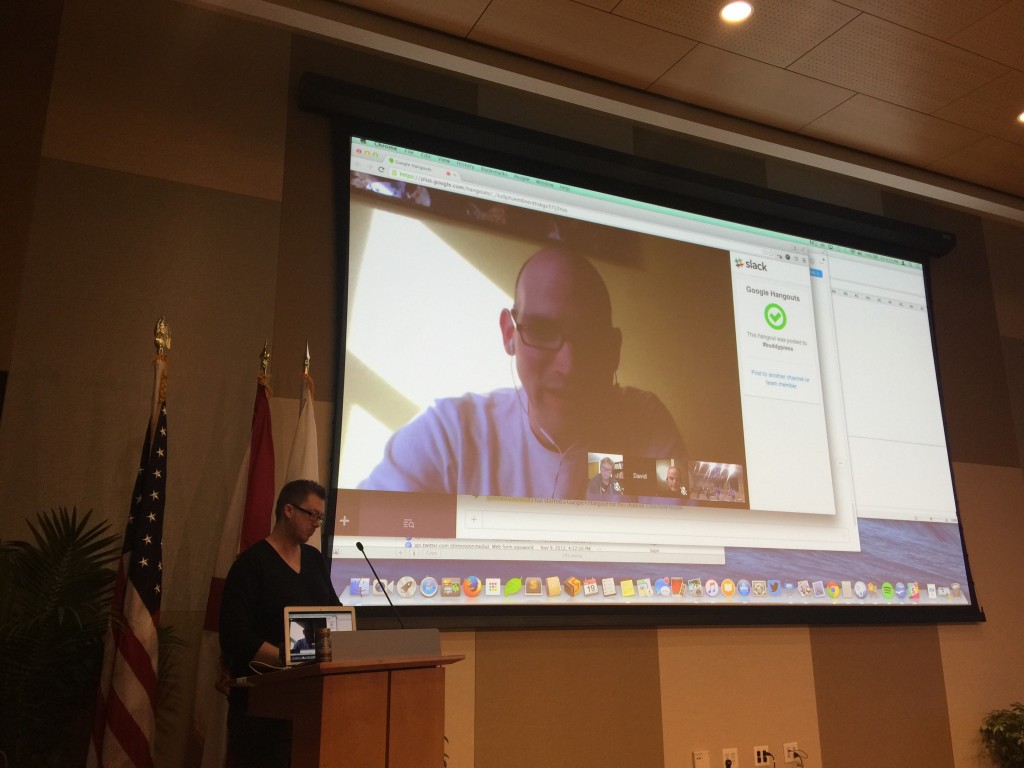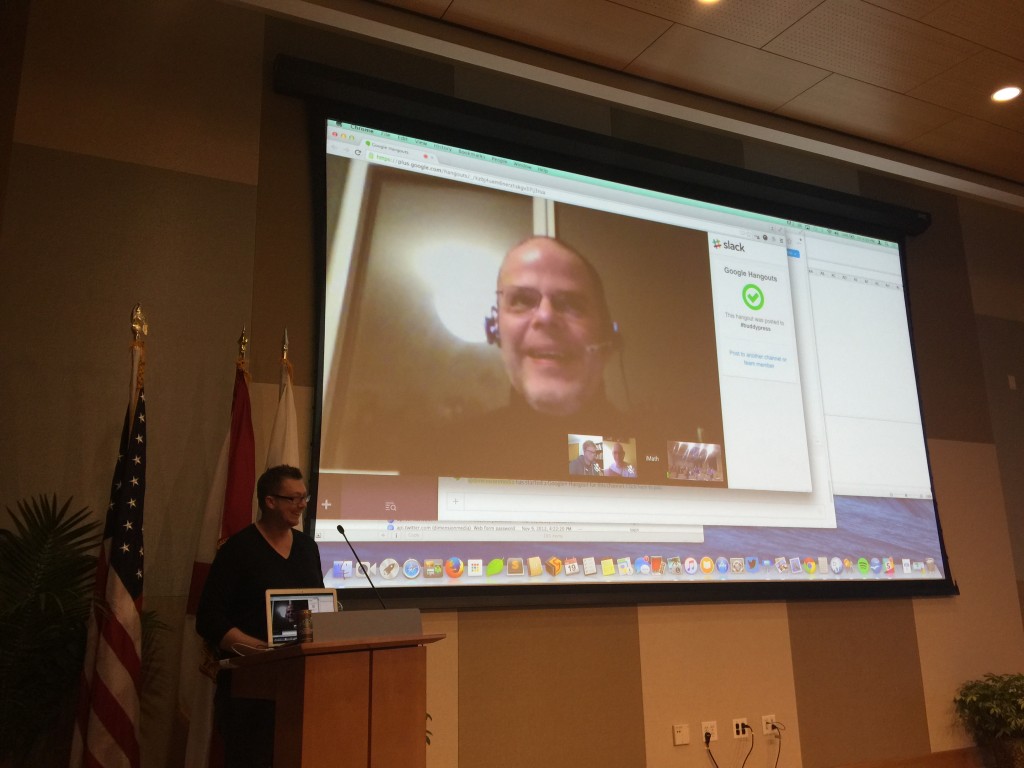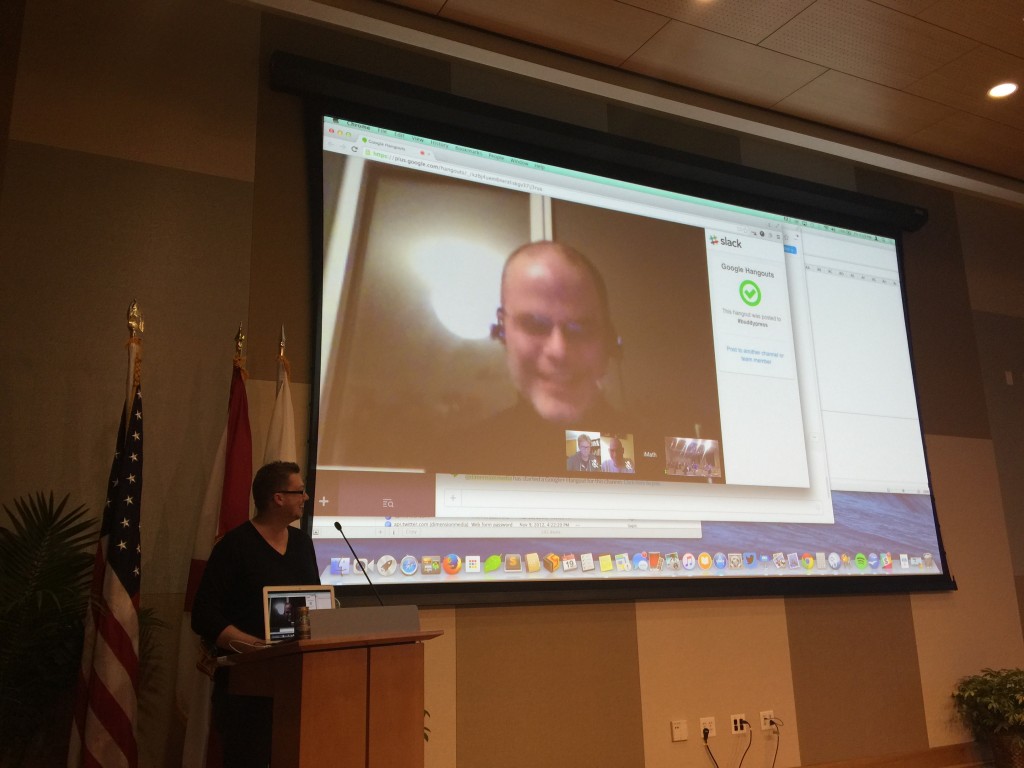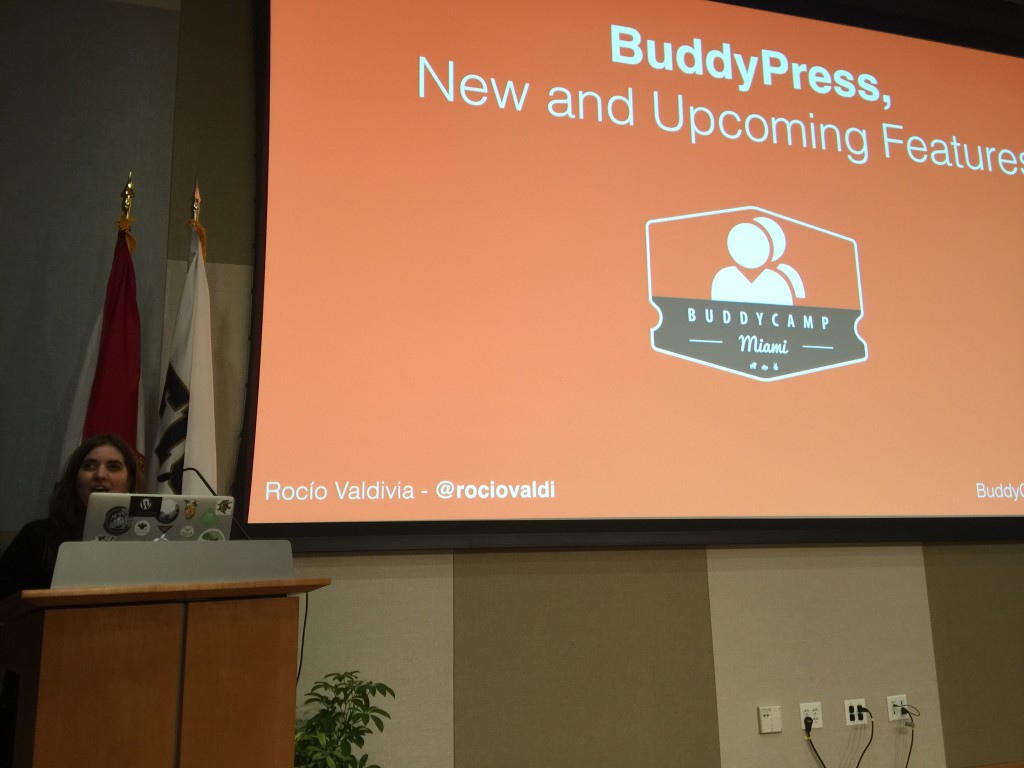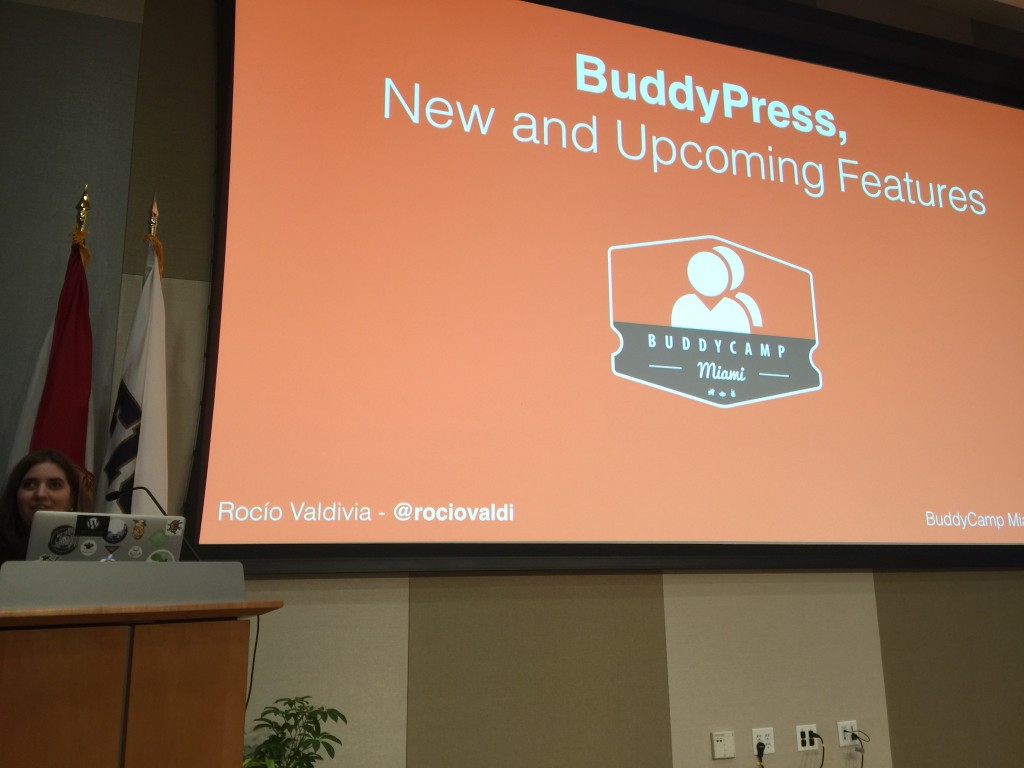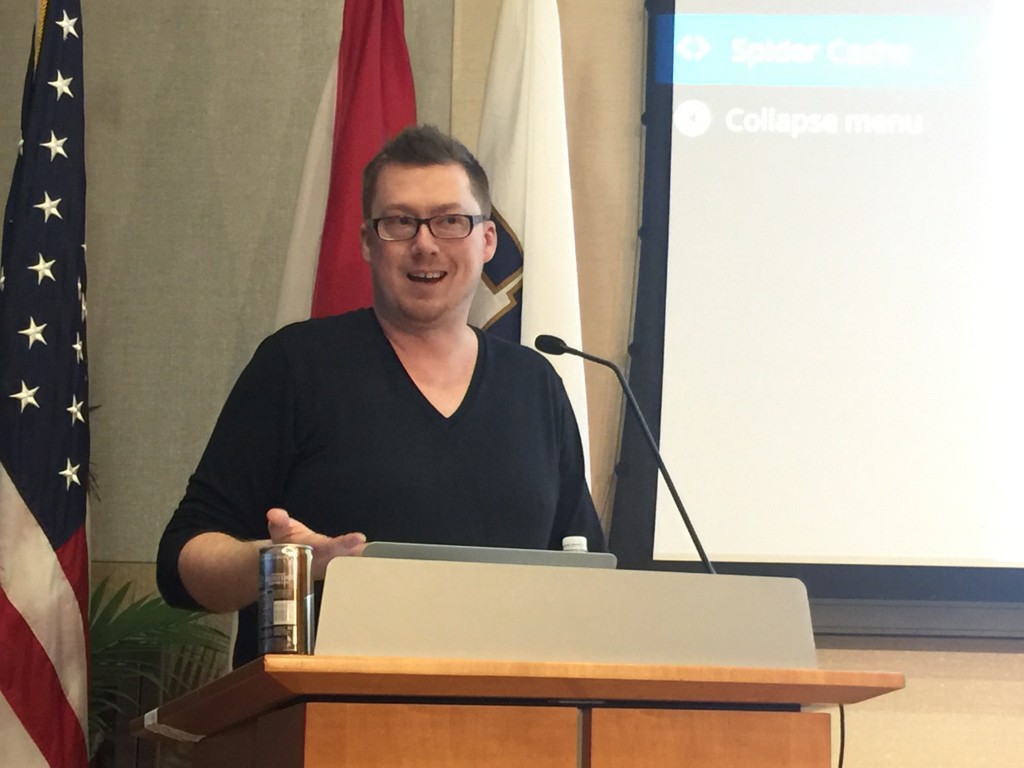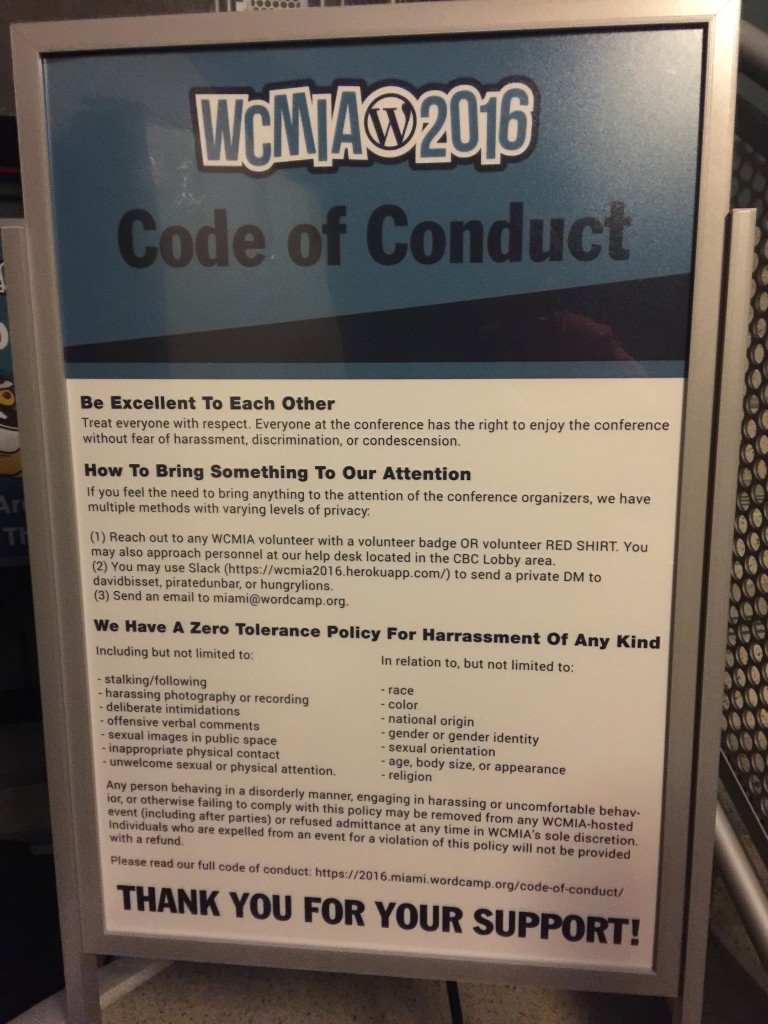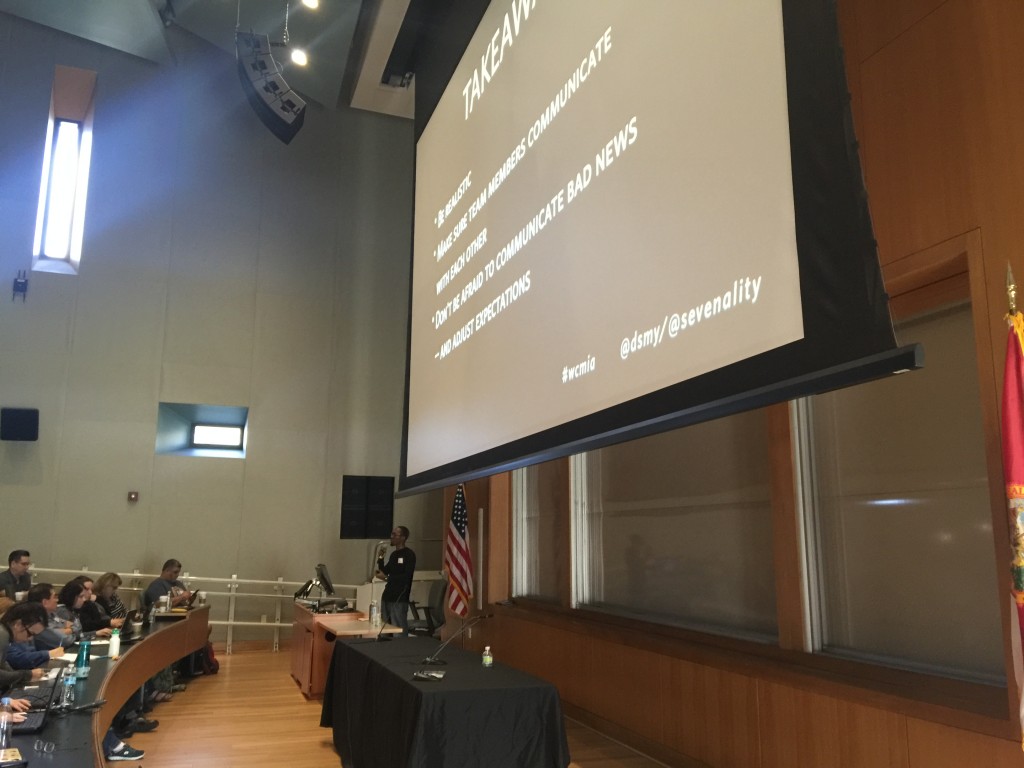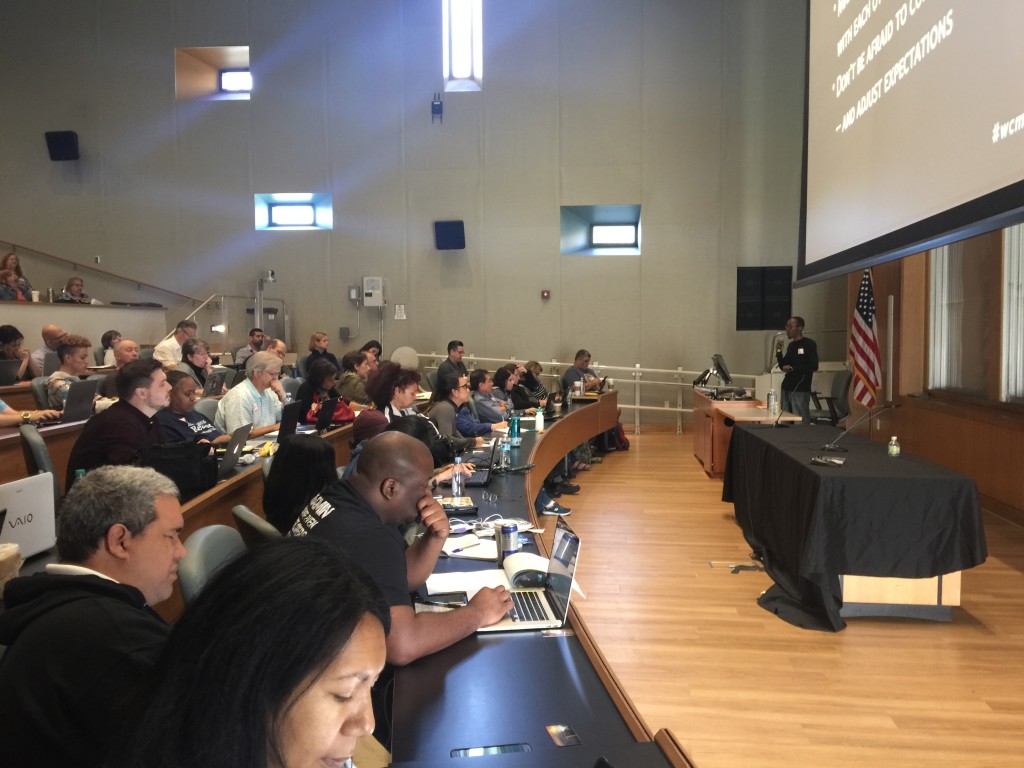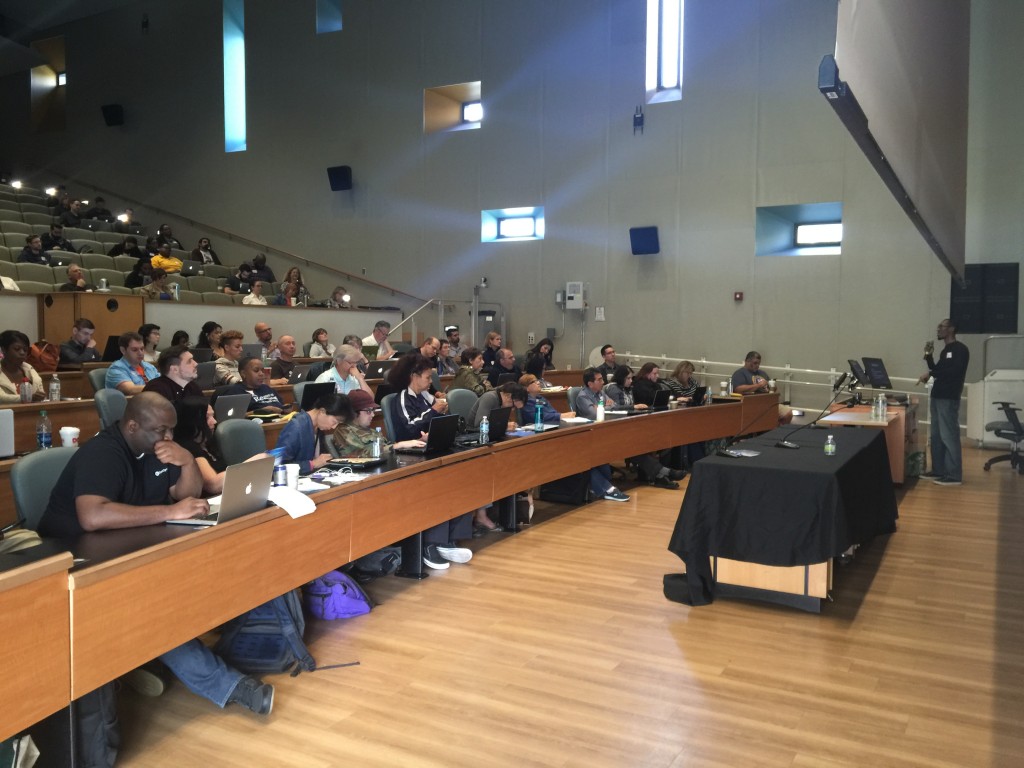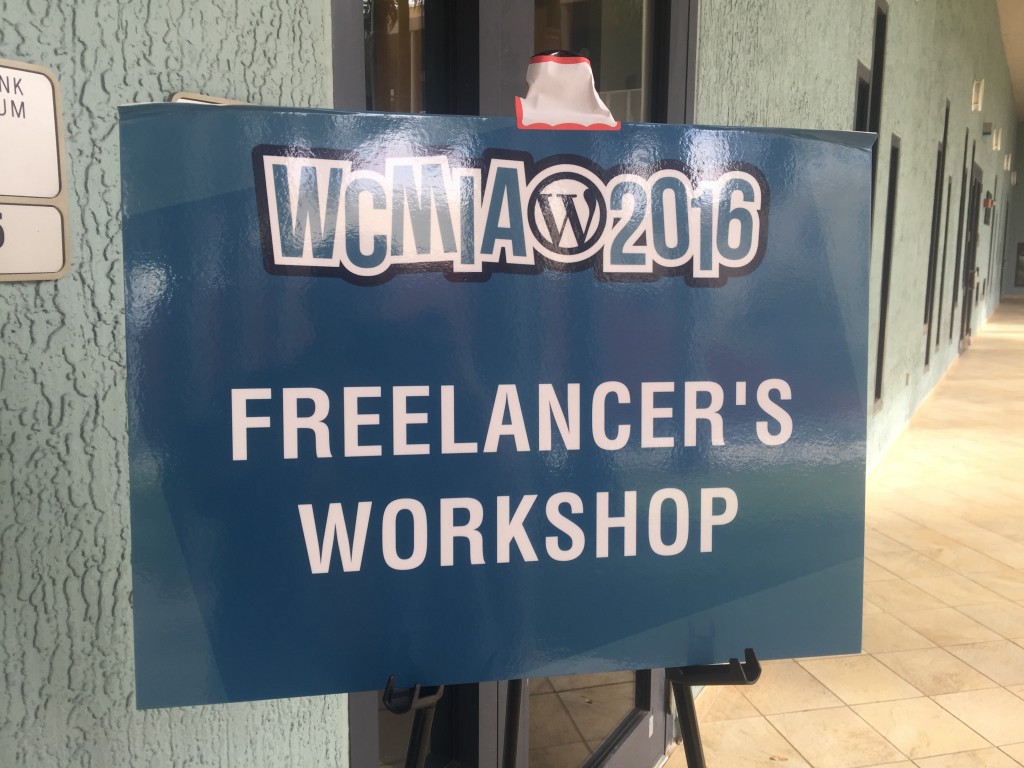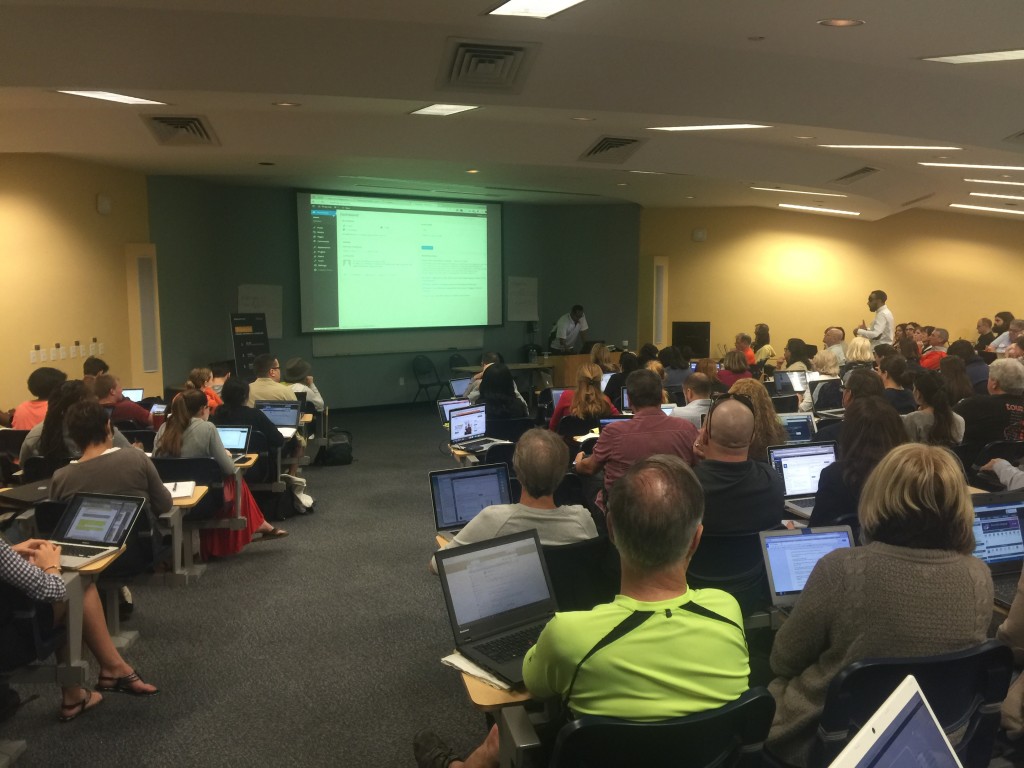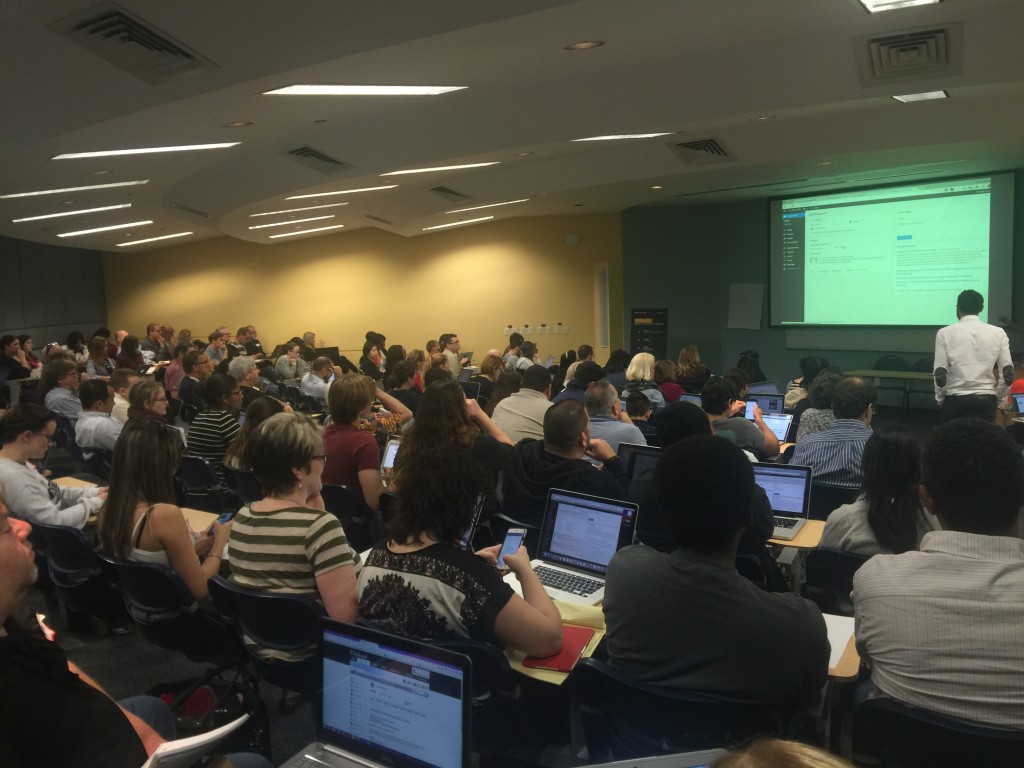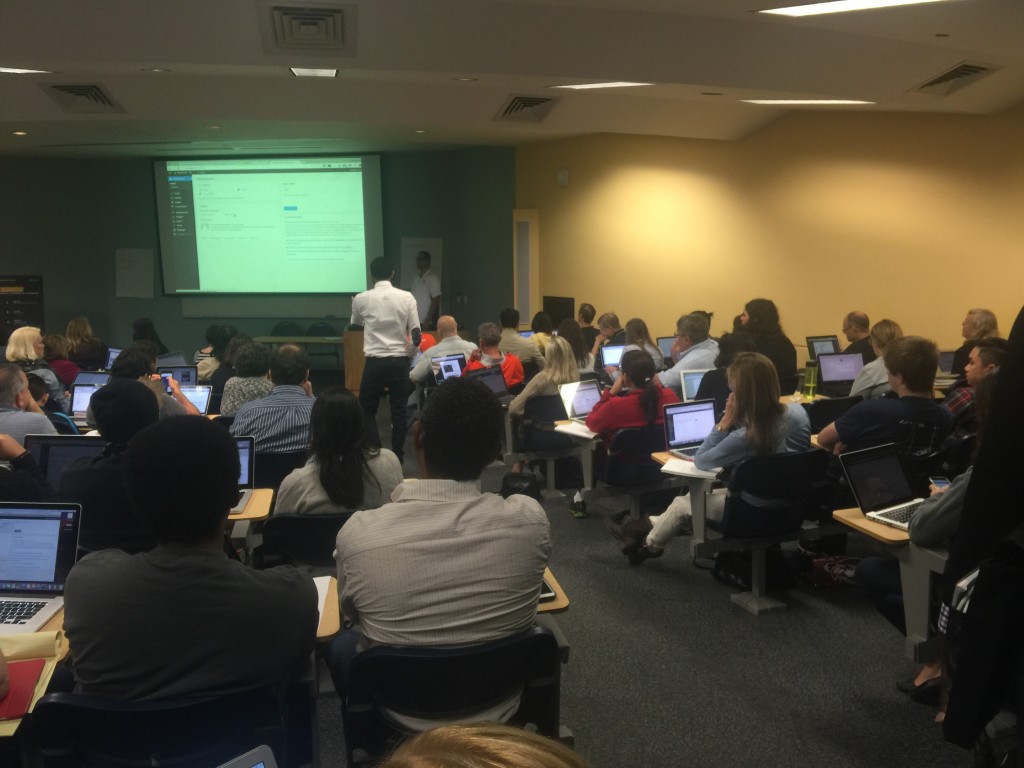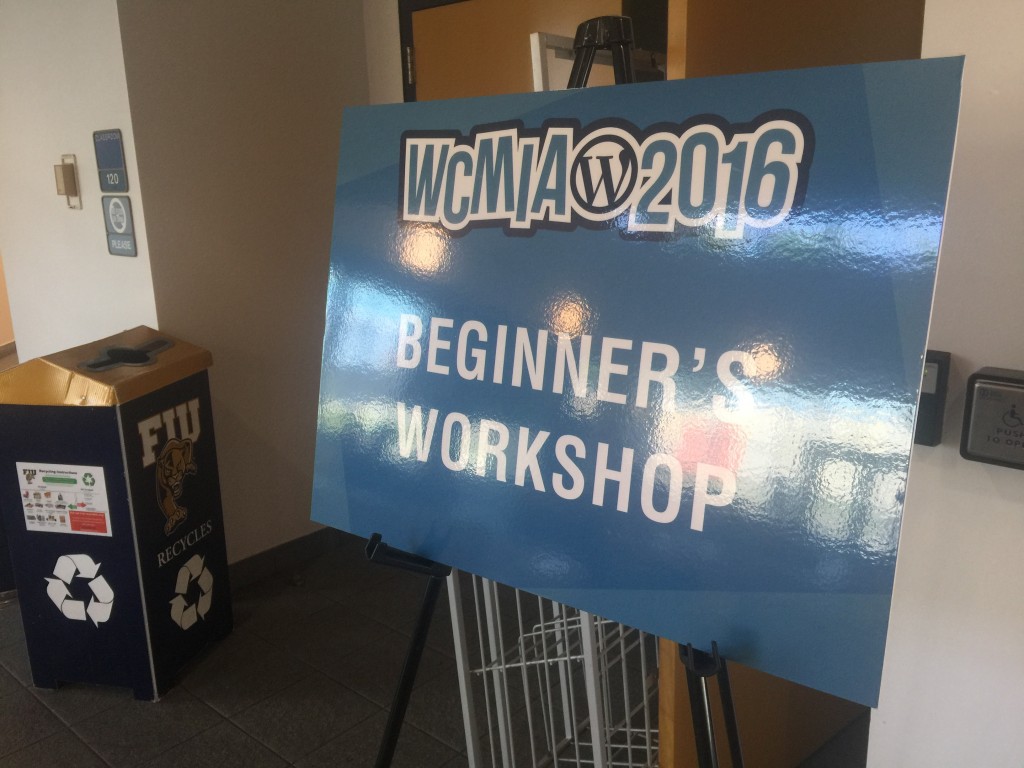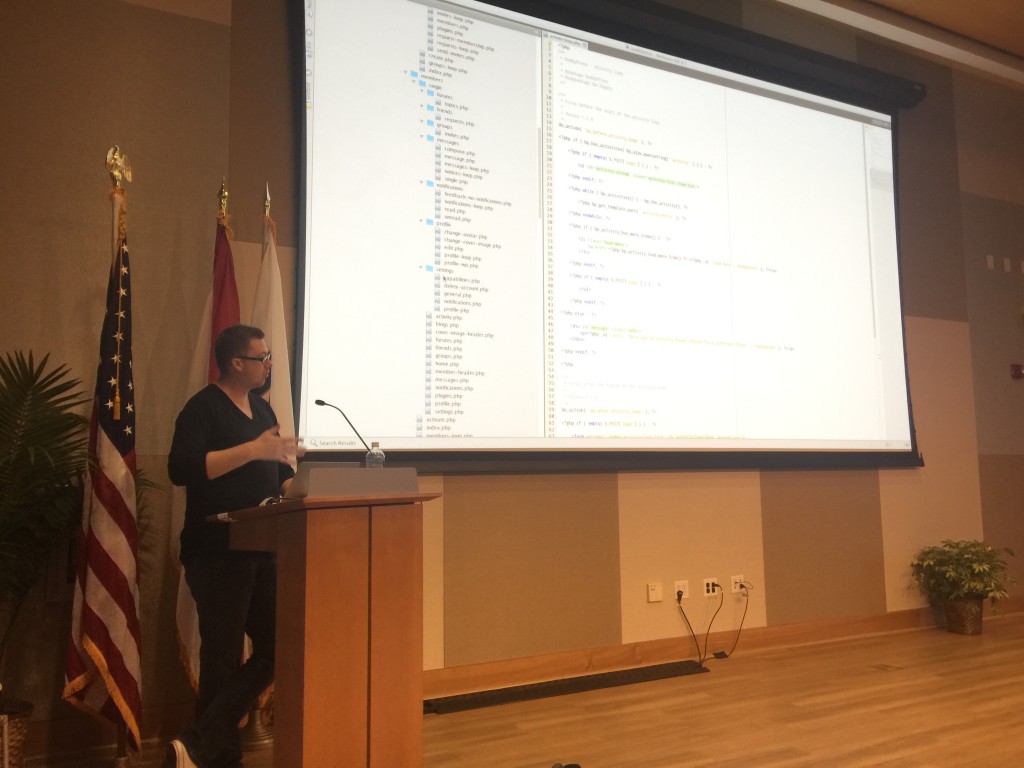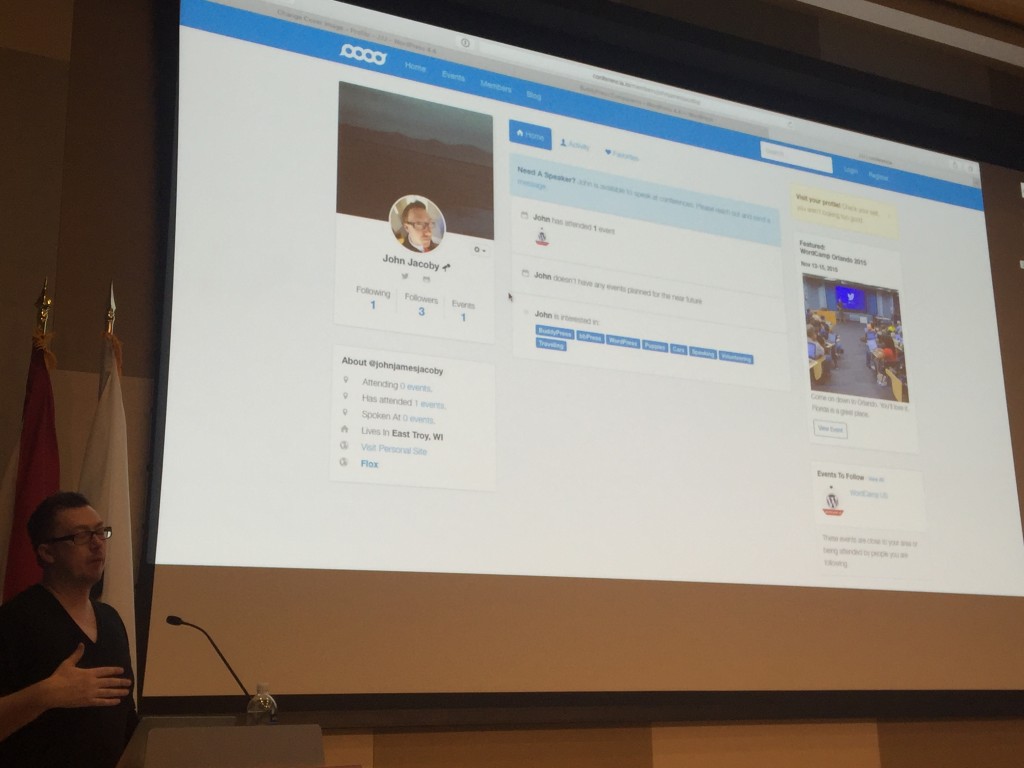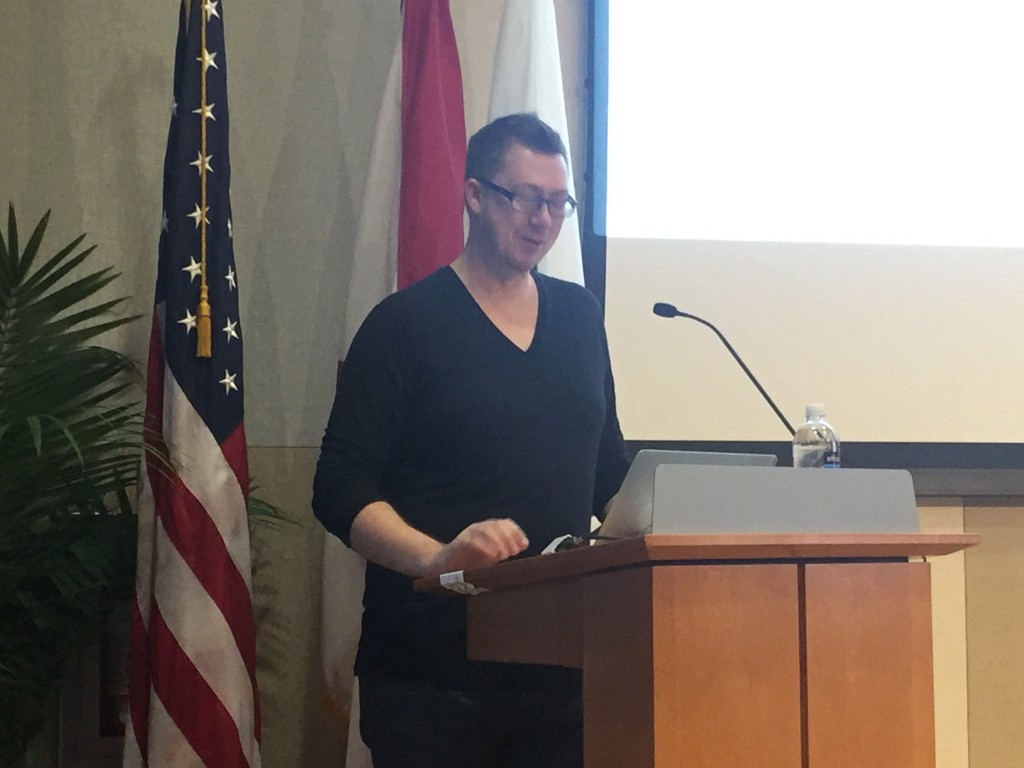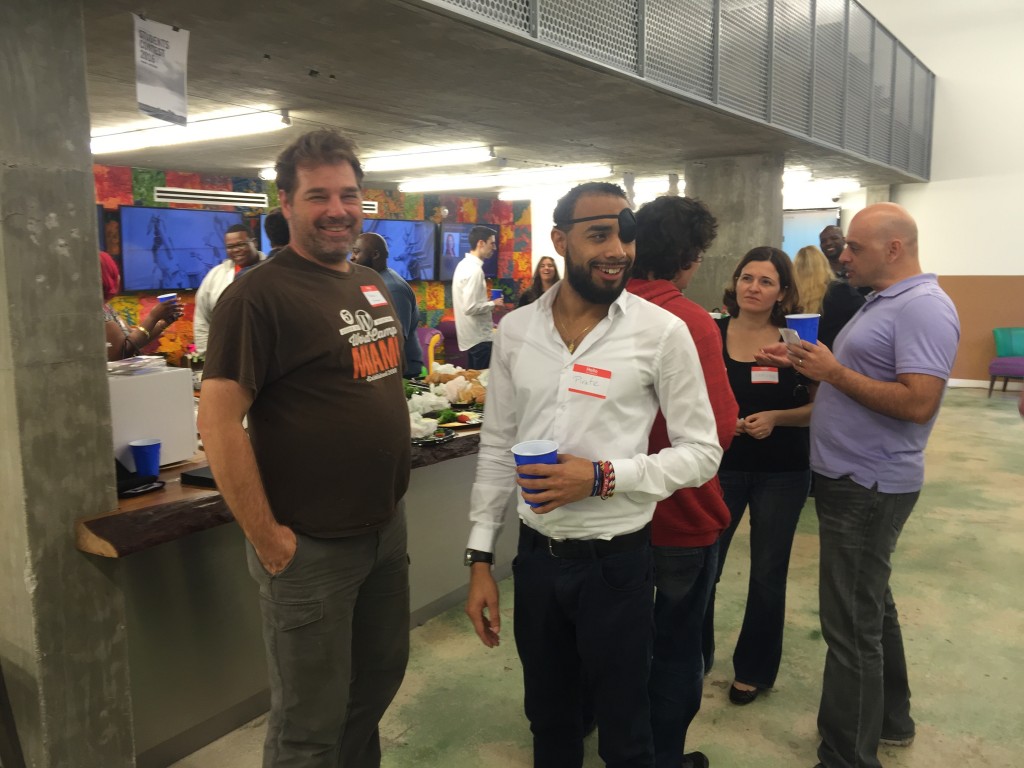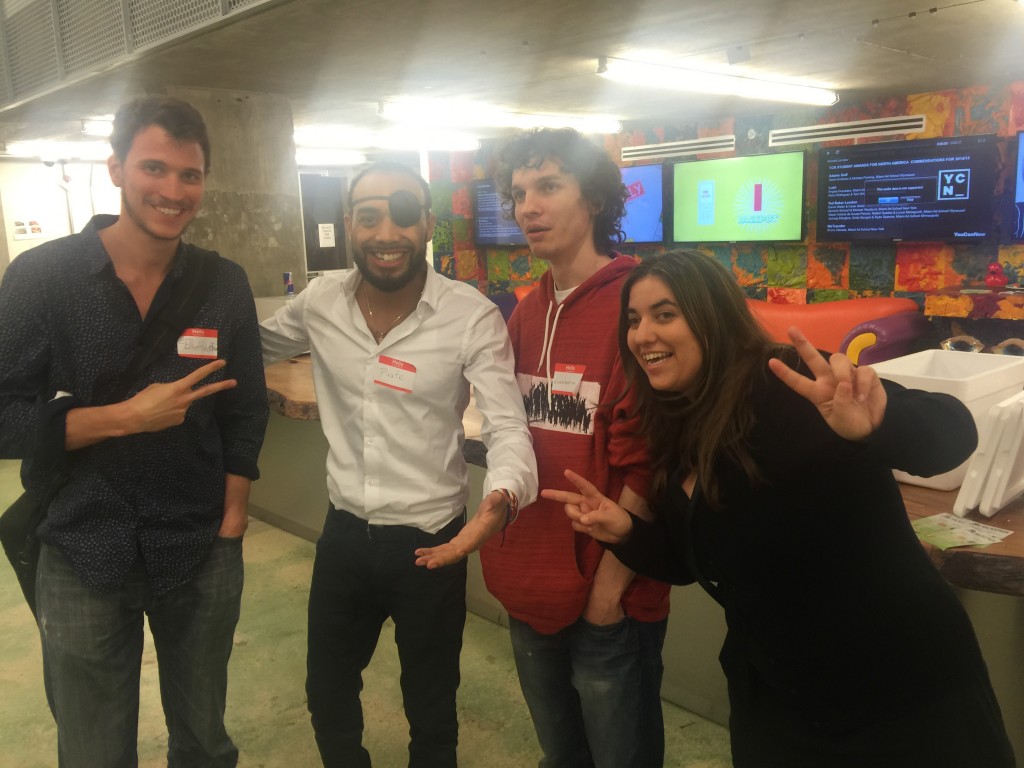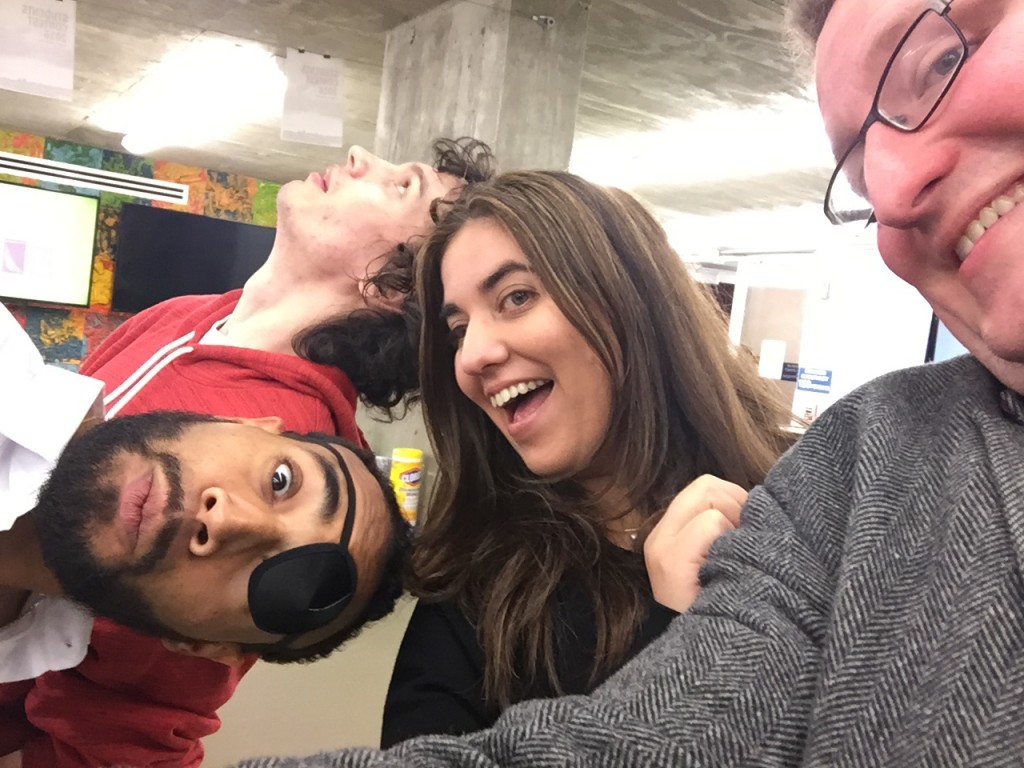Finally recovered enough to write this blog post. Obviously as a WordCamp Miami organizer i’m biased as to what I liked about the event, but also as an organizer i have a unique perspective. So if you wanted to know some of the behind the scenes info, along with some stats, read on. And since events have their problems – either within your control or completely out of your control – i’ll be mentioning some things that went wrong to some degree.
Attendance
WordCamp Miami was the largest it’s ever been with about 850 attendees, including children from our kid’s camps. In 2015 the official number was 770, and in 2014 around 700. 1,342 tickets were sold this year (that included our two-day weekend tickets, workshop tickets, kid’s tickets, and misc. tickets).
We had the largest turnout percentage for Sunday – our Learn JavaScript Deeply track was packed early in the morning, and our other session rooms saw more numbers than last year.
Even with these increased numbers, our registration was the fastest i’ve ever seen. As the hundreds came in on Saturday morning (what WCMIA organizers nickname “D Day”), our volunteers took care of them so quick I thought – just based on looking at the registration line – that people weren’t coming early to WordCamp. That wasn’t the case of course – the line simply wasn’t getting long because our registration volunteers were kicking that much butt.
Speakers
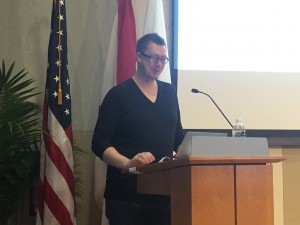 WCMIA had a record 210 speaker applications (up from 150 or so last year). We officially had 80 speakers – also a new record for us (I would like to know if any other WordCamp has that many – would like to start a support group). Not sure if that number will be as high next year… there are complications when you have that many speakers especially for me (leading speaker/schedule organizer). Not to mention that it made our VIP party around 140-150 people (speaker’s +1s plus sponsors, VIPs, etc.).
WCMIA had a record 210 speaker applications (up from 150 or so last year). We officially had 80 speakers – also a new record for us (I would like to know if any other WordCamp has that many – would like to start a support group). Not sure if that number will be as high next year… there are complications when you have that many speakers especially for me (leading speaker/schedule organizer). Not to mention that it made our VIP party around 140-150 people (speaker’s +1s plus sponsors, VIPs, etc.).
We did have some last minute speaker issues – one speaker dropped out about two weeks prior to the conference. Another speaker dropped out literally an hour before due to family issues. Both cases were completely legitimate and hoping to have these speakers back in the future. WordCamp Miami – like most WordCamps – had an emergency “speaker list” for individuals already coming to the event that can fill in last minute. We also had some last minute people step in for panel moderations, and thankful also to those as well.
Although i’m proud of the diversity in our speaker lineup, so much more work needs to be done. WordCamp Miami doesn’t just put out a call for speakers then sits back waiting for applications… like in previous years we made an active effort to reach out to those not in the “WordPress Bubble” or have spoke before. For 2016, we had around ten speakers who never spoke at a large scale conference or WordCamp before. We had two speakers that were under the age of 14. And approximately half of our speakers were what we would consider local. We had a number of lightning talks so we could introduce more local speakers to speaking, with the hopes of encouraging them and others to apply to future WCMIAs.
Diverse speakers and diverse topics are always a priority for WCMIA. Our goal is to try to get as many people to apply as possible, but we especially target individuals and groups that haven’t in the past or need encouragement to do so. Everyone has a story to tell. While it’s sad that we don’t have the time for every story to be told over the three days – and because this is still a local event in many ways, the local audience is a consideration… it’s still important for WCMIA to be actively reaching out to as many people as possible. The larger and more diverse the pool of speaker applications, the better chance the speaker lineup will be diverse.
We also made a special effort to reach out to Drupal and Joomla communities. We made some new contacts and friends, which hopefully will be also seen in future WCMIA events. We did have a speaker who was a prominent figure in the Joomla community, but that speaker had to drop out (hopefully we will see that person in a future WCMIA lineup). We already gotten some great local front-end/JavaScript speakers outside of the WordPress community, and our goal is to keep that up in 2017.
Another quick note: Having a dedicated private speaker channel in Slack was a big help (this was our second year using it) in communicating last minute updates and answering questions once (instead of same questions over and over again in emails).
Kid’s Panel
Speaking of speakers and talks, a quick mention that this was the first year we had a Kid’s Panel. Again, I would love to know if other WordCamps have done this (i’m not aware of a 100% kid’s panel at a WordCamp as of now) and how… but our first panel was solely focused on what technologies and tools young people use to publish content (blogging or otherwise). This was primary for the benefit of the CURRENT AND OLDER generations in the audience… are kids using WordPress? What are their friends using?
Also interesting that our first panel was entirely made up of young women! I can’t wait for this to be up on wordpress.tv. And special thanks to Sandy Edwards for being the moderator.
Slack
WordCamp Miami started using Slack in 2015 and to my knowledge was one of the first WordCamps to do so. I wrote about our use of it here.
So WordCamp Miami once again used it this year and provided a self-invite link in emails and on the website. There are various easy non-technical ways to do this for your own event. I would guessing this year maybe 150 maybe would end up in there… but we had 375 by the time the conference started. This blew my mind.
Slack turned out to be more of a help than a pain, so it was an overall win. We had the good idea of devoting a volunteer (Rick Tuttle) whose primary job was (among updating the website during the conference) was monitoring the public channels. He would answer common questions from the attendees and every morning he would send out early reminders (mostly pointing people to the website – because let’s face it, you could send a billion reminder emails but some people just don’t think to look or read the website sometimes). It was good to have a dedicated person to this – if you’re camp is going to do this, pick an organizer who can monitor this from a day before the conference up to the closing remarks. I honestly had to turn off my Slack notifications for most channels during the event.
Slack gives people who haven’t read the directions/information (or have a legit question, something we missed) a way to ask a question or comment instead of putting that publicly on social networks (where it’s harder to monitor, and frankly less of a chance your urgent question is going to be answered). We used to use a SMS-text messaging service, but we’ll be sticking with Slack next year for communicating with attendees. I’m glad we had Rick covering things in our Slack channels.
Technical (And Not So Technical) Issues
WordCamp Miami can’t seem to escape technical issues, no matter how much we prepare. We had to move our developer track on Saturday thanks to a faulty projector that apparently couldn’t be repaired by onsite technical staff. This – from what i hear and have been told – impacted talks from Adam Culp and Cal Evans – but i hear they did the best they could under the circumstances.
There was also a problem with our Beginner’s Workshop on Friday – they had to physically move to another room mid-day due to a “scheduling conflict”. This was a bad thing, and we were fortunate that we had a room to move to. I’ll be honest and upfront that this was a mistake made by the venue – we had checked about a half dozen times of the availability of that particular room over the course of a few months. So how do you make sure this doesn’t happen again? Best thing is to increase the checks and improve the communication channels before and during the conference. Organizers know that there’s only so much “checking” you can do with a venue in terms of rooms. Fortunately our room captains for the beginner’s workshop were cool under pressure and we made it through that workshop.
Thanks to patience from the attendees and volunteers… plus having experienced volunteers and organizers (and having Plan B and C’s in our back pocket)… allowed us to sail through the storm. Typically you’ll get a mention or two about these problems in the survey feedbacks, but overall most people understood that WordCamp Miami wasn’t at fault – or at least it seemed that way.
We had some small problems with certain catering not being quick enough. Again, one of those things that you couldn’t help too much at the time but organizers are already coming up with new methods for 2017 so we can hopefully avoid such problems in the future.
Sponsors
I’m grateful to all the sponsors that supported WordCamp Miami this year. Outside of one incident where sponsor materials were delivered late, it was smooth sailing and the sponsor area had more foot traffic then last year (something sponsors of course love). Our organizers had the good idea to label each sponsor table prior to the event so sponsors could walk in and setup (we also setup alot of the event signs and tables the day prior – another good idea). Sponsors with tables were also provided with WordCamp Miami trading cards later Saturday morning so attendees had reason to come back to the sponsor area.
I loved what the sponsors as a whole did this year. Seems like every sponsors try to outdo themselves – a certain sponsor had a game console at their booth, for example. WordCamp Miami also formed the beginning of (what I hope to be) long term partnership with local sponsors like IronHack, Wyncode, Girl Develop It, ratvlive.com, etc. WordCamps SHOULD BE LOOKING OUTSIDE THE WORDCAMP BUBBLE and form relationships with other relevant local communities. Everyone from freelancers to javascript meetup groups to coding schools.
“Gold” sponsors (who get a physical presence at the event) are appreciated, but WCMIA also appreciates the other sponsors as well – those who get the mid-level sponsorships and those who get the COMMUNITY level sponsorships. As an event/WordCamp organizer you don’t want to forget about these sponsors simply because they aren’t writing the big checks… at WCMIA we attempt to reach out to them and see if there’s any particular way we can give them a little “15 minutes of fame”. This year i’m not sure where we would grade ourselves on this, but it’s something we always try to accomplish. Mentioning mid-level sponsors at pre-parties and at certain times/places at the event help remind them that we appreciate them too.
WCMIA offers a “bonus” for sponsors that sign up to sponsor WCMIA early on (right after we announce the event) in the form of early bird discounts. This has proven to be worthwhile and successful for us. and our sponsors appreciate it as well.
Volunteer Support
 The volunteers and the organizers are the unsung heros of WCMIA. We had volunteers help us out at various times of the day along with those in charge of specific tasks like the Happiness Bar, after-party coordinators, overseer of Room MCs, and those in charge of communicating with catering and food delivery people during the event. We easily had over 50 active volunteers for any given day.
The volunteers and the organizers are the unsung heros of WCMIA. We had volunteers help us out at various times of the day along with those in charge of specific tasks like the Happiness Bar, after-party coordinators, overseer of Room MCs, and those in charge of communicating with catering and food delivery people during the event. We easily had over 50 active volunteers for any given day.
We had alot of support before the event too. Jean Felisme for example handled alot of speaker coordination and website updates prior to the conference. A full list of our organizers is here. Each one deserves huge praise.
One of the more noticeable areas to attendees would have been the help desk / registration area which was constantly well staffed. I already mentioned how well the registration desk processed attendees on Saturday… but we had some great features also setup that helped things run even smoother. For example, we had a dedicated “off to the side” area just to register and help speakers/VIPs with questions and such. Everything from getting speakers their speaker bags to locating someone’s speaker cards… proud to say that operations for the most part went smoothly from the feedback we’ve been receiving so far.
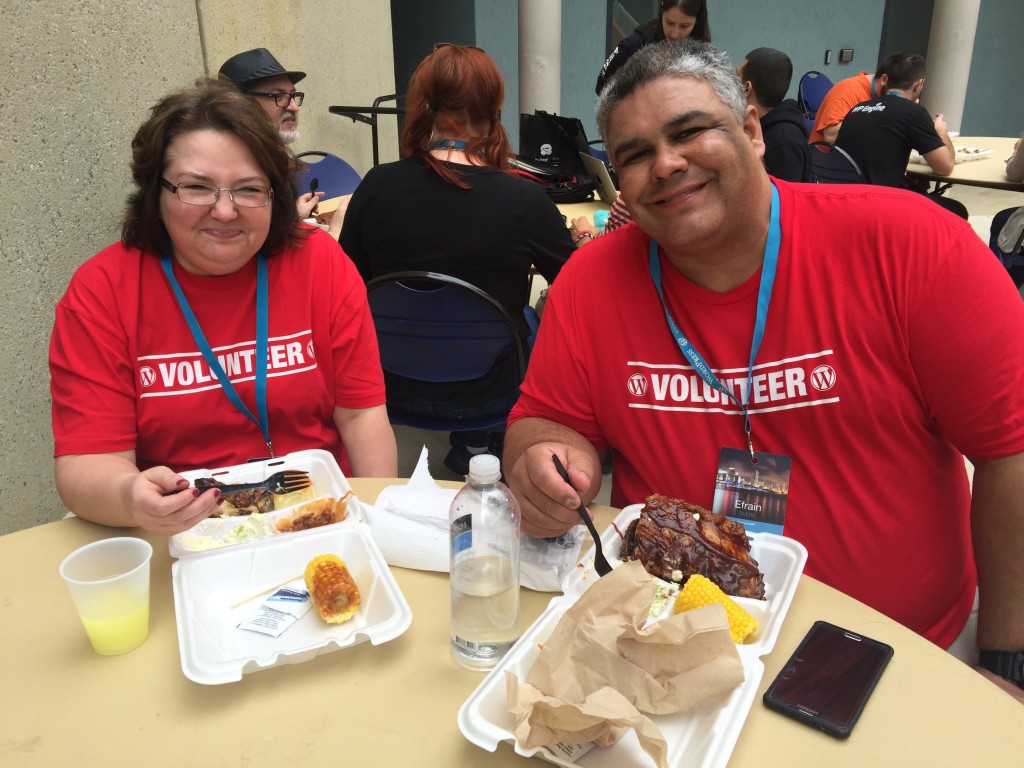
There are so many people to thank but volunteer coordinator Jim Wells deserves praise along with Efrain Rivera and his wife Crystal for organizing registration and for help manning the help desk throughout the entire weekend. I don’t know how they physically and mentally did it – but if there was ever a public award to give out they would be first in line to get it.
This year was the first year WordCamp Miami started using red volunteer shirts for the key volunteers, so that they could easily be spotted in a crowd in case someone was looking urgency for a volunteer. We also had volunteer name bags for those without shirts. Both shirt and badges were effective and will be done in future events.
Signs
 Special shoutout to Todrick Moore who – for the first year – was an organizer almost solely devoted to signage at the event. Many WordCamps – including past WCMIA events – always had some signs, but always something at the last minute wasn’t planned and you had handwritten signs as a result. Nothing wrong with hand-written signs, but we strived to be similar to WordCamp US in that all signs were though of in advance… from signs in the parking area to signs showing a “you are here” shopping mall type of map.
Special shoutout to Todrick Moore who – for the first year – was an organizer almost solely devoted to signage at the event. Many WordCamps – including past WCMIA events – always had some signs, but always something at the last minute wasn’t planned and you had handwritten signs as a result. Nothing wrong with hand-written signs, but we strived to be similar to WordCamp US in that all signs were though of in advance… from signs in the parking area to signs showing a “you are here” shopping mall type of map.
Tip for organizers: you can never have too many signs. You could have probably a sign every 12 feet, but people will still note in post-event feedback “there could have been more signs”.
This year was the first year we created a sign especially to summarize and highlight our Code of Conduct. I have seen these at a few other conferences, and the idea has been spreading. Haven’t this at any other WordCamps yet, but I hope it catches on. Code of Conduct signs should be placed of course in prominent locations – at least one of our CoC signs was placed near the registration desk so everyone saw it before they registered.
Food
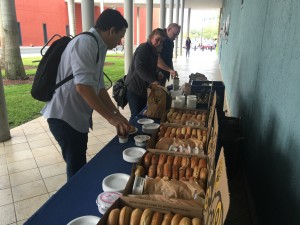
Outside of catering people being a little late for Sunday lunch, food operations went smoothly this year. We provided our usual coffee/bagels in the mornings (we used a new catering service so it was delivered on time) and had key locations at the venue where we spread out coffee and snacks throughout the day. Our usual BBQ was again awesome for Saturday lunch (veggie options were covered by the same company). Snacks for Saturday were pies/cookies (similar to last year) and Sunday was our hydrogen-frozen ice cream which once again went over well (we’ve been doing that ice cream from Chill’n Ice Cream for over five years now).

One apparent issue: veggie options for lunch. Especially on Sunday, we apparently ran out of veggie options far too quickly. We can only assume that people who DID NOT mark down “veggie” as an option still took food set aside for those who did mark “veggie” on their ticket. Of course WCMIA organizers can’t check the 800 people grabbing food what they marked down, we can only hope (and remind) people to pick the food item they requested when they obtained their ticket online. Sadly in the future we will have to expand food budget to cover more veggie options because of this. But on the plus side we did not run out of food in general. And organizers were reminded that we had at least 50 children to add to food counts in addition to the attendees.
It’s also important for snacks to remember to include healthy options for attendees. We had enough sugar present to sick a ship, but we also had bananas and other fruit present along with nature bars for the kids.
Swag
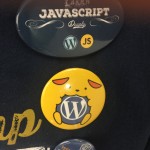 WordCamp Miami is fortunate via various reasons to provide swag to our attendees. Some WordCamps can’t. A little swag is nice, but vast amounts of swag nor the “uniqueness” of the swag isn’t required to have a successful camp. For the most part it’s icing on the cake. That being said, WCMIA is proud of it’s unofficial tradition of providing some different or cute things throughout the years. We keep most of our items secret until the event, and many things are “easter eggs” meaning that some things attendees might not even notice or they’ll walk right by them… those who are frequent attendees of WCMIA have started to learn to look for these particular things.
WordCamp Miami is fortunate via various reasons to provide swag to our attendees. Some WordCamps can’t. A little swag is nice, but vast amounts of swag nor the “uniqueness” of the swag isn’t required to have a successful camp. For the most part it’s icing on the cake. That being said, WCMIA is proud of it’s unofficial tradition of providing some different or cute things throughout the years. We keep most of our items secret until the event, and many things are “easter eggs” meaning that some things attendees might not even notice or they’ll walk right by them… those who are frequent attendees of WCMIA have started to learn to look for these particular things.
We don’t stress ourselves to outdo ourselves or others in this department – I imagine someday we will eventually run out of ideas (important to note we did borrow a few ideas from other past events too – the open source nature of WordPress also lives in WordCamp organization). But here’s some of highlights of things we did, that perhaps will insure other organizers (some items we’ve shared so that you can completely copy and can be used for other camps):
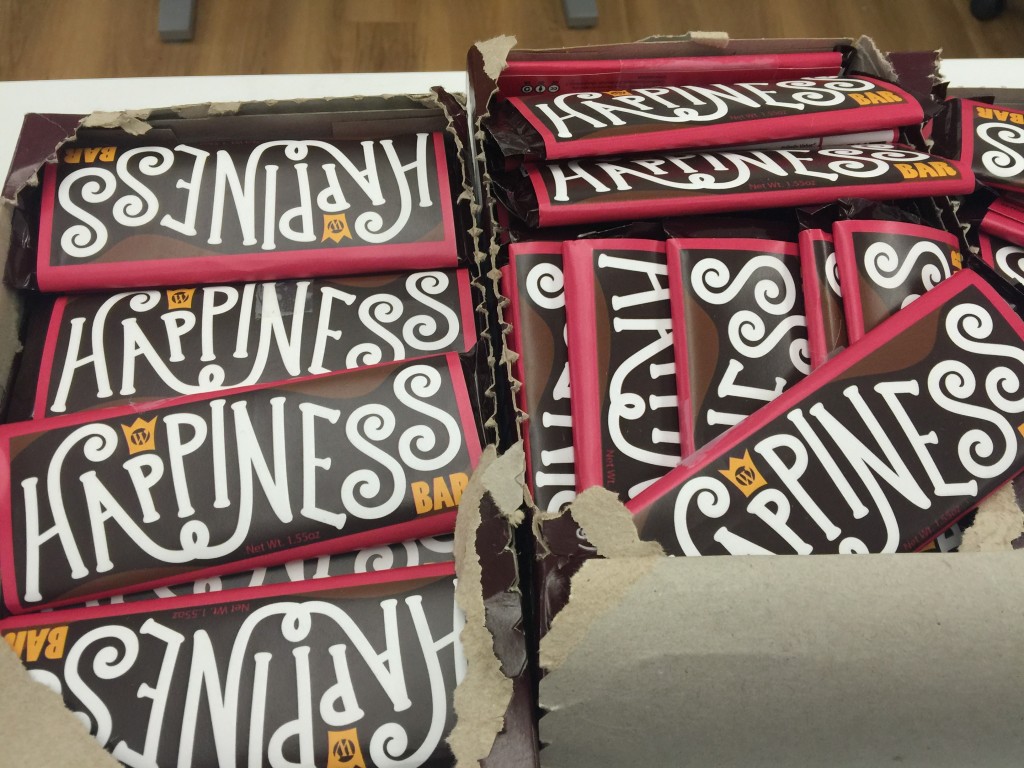
Happiness Bars
– This idea was over a year in planning. I reached out to Erin Fonzi Denton last year with the vision of “creating a Wonka bar that was WordPress themed” and she nailed it. It was cool to say “yes, the happiness bars are in the Happiness Bar”.
-
Wapuuno
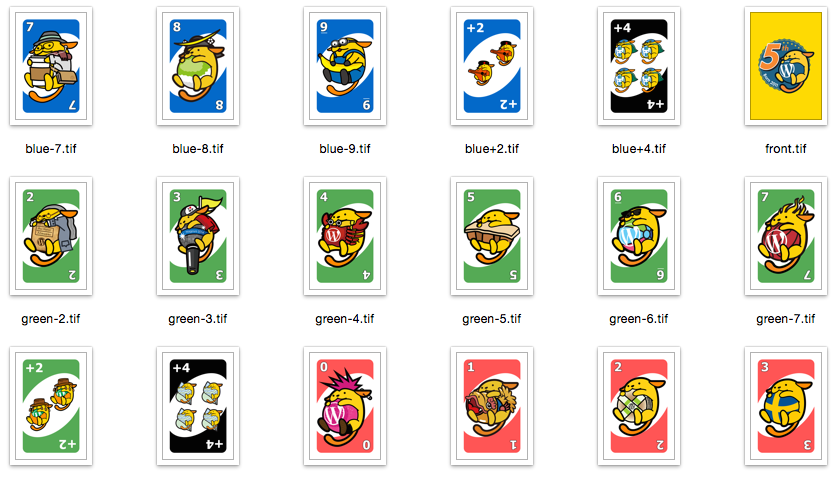 – In 2015, speakers got WordPress coding playing cards so the next logical step for a speaker gift this year was UNO cards, Wapuu style. Outside of the Wapuu shirts, these were the most sought after item (even though they were speaker gifts and not something available to general attendees). We got a couple of people come up us at the event and people emailing us afterwards if they could buy a set. After WCMIA, we posted all the files for these cards and produced instructions how people could create their own. Maybe another WordCamp will produce these for their speakers or attendees, perhaps modified so there will be a new edition!
– In 2015, speakers got WordPress coding playing cards so the next logical step for a speaker gift this year was UNO cards, Wapuu style. Outside of the Wapuu shirts, these were the most sought after item (even though they were speaker gifts and not something available to general attendees). We got a couple of people come up us at the event and people emailing us afterwards if they could buy a set. After WCMIA, we posted all the files for these cards and produced instructions how people could create their own. Maybe another WordCamp will produce these for their speakers or attendees, perhaps modified so there will be a new edition! -
Wapuu Shirts
–
 Easily the most popular swag at the conference, but the shirts were only meant to be kid’s shirts. Again we had offers from grown adults to buy shirts in their size. I would imagine the shirts will make a come back in future events.
Easily the most popular swag at the conference, but the shirts were only meant to be kid’s shirts. Again we had offers from grown adults to buy shirts in their size. I would imagine the shirts will make a come back in future events. -
Pins
– Each attendee got a random Wapuu pin. There are apparently people that collect WordCamp pins, so those few were busy locating and trading with other attendees at the event. In case you were wondering, WCMIA had more of the usual Wapuu stuff because the 5th anniversary of the Wapuu itself happened to fall on the same week as WCMIA.
-
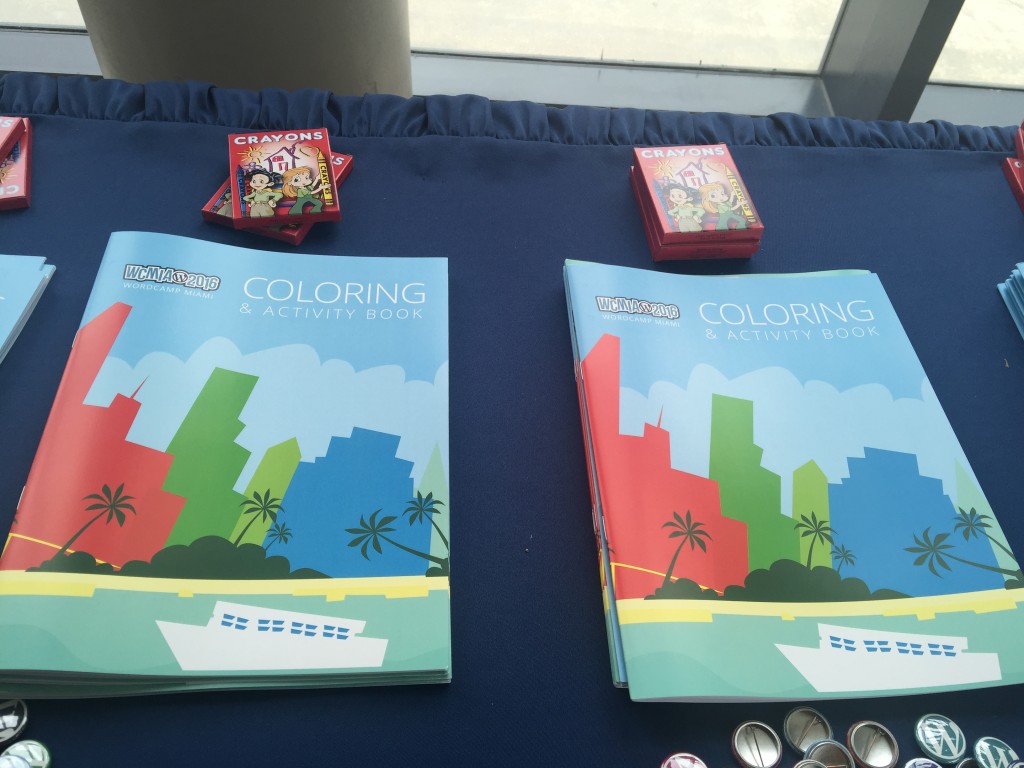
-
Coloring Books/Crayons
– WordCamp Minneapolis started this and we gratefully used their files on Github to create our own versions. These were popular with kids and adults alike.
-
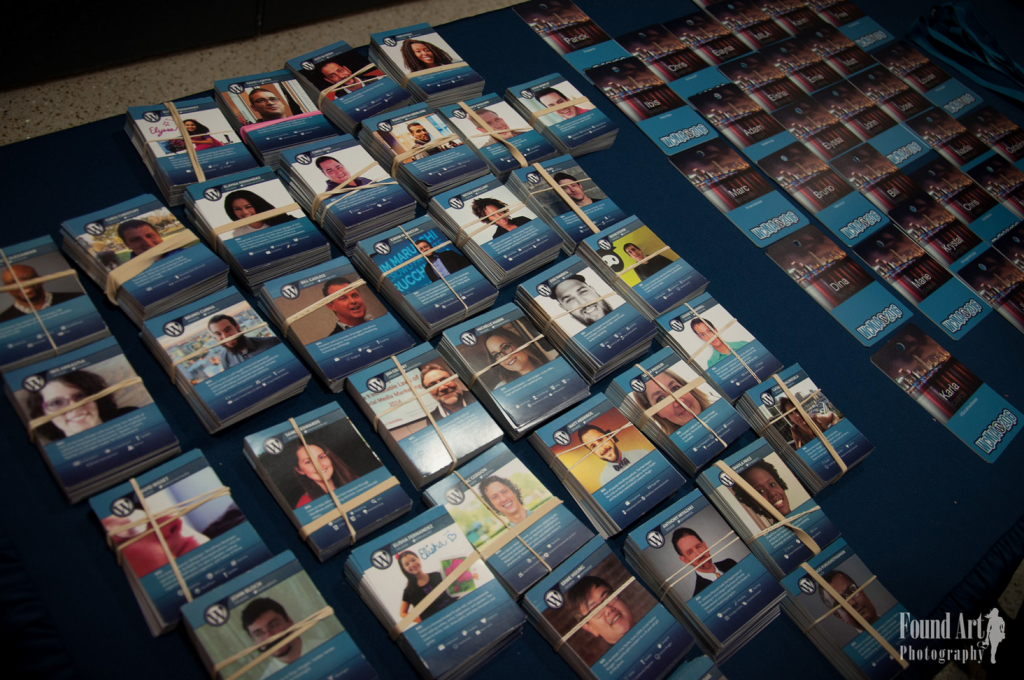
-
Speaker/Sponsor Cards
-A WCMIA tradition for about five years – special recognition goes out to Wendy Delfosse for helping us with all of these this year.
Video Booths & Social
For our second year we had a video booth run by a great volunteer Pascal Depuhl. This was his idea, and i’m going to be anxious to see what videos he has created from attendees.
Special kudos also to those who helped us in the social and live interview departments: Arts And Culture TV, RATV Live, and those at FIU and other volunteers who monitored our social networks… according to reports #WCMIA had over 20 million impressions over Twitter!
Photography & Video
This year was probably the best year for photography and video for WCMIA.
First off, we located some volunteers prior to the event who wanted to take photos. These volunteers either were people with a good camera phone that would consciously take alot of photos to the semi-professionals with more professional cameras (photography was their job or hobby). WordCamps should definitely have at least two volunteers who’s primary job is taking pictures… and provide an easy way afterwards to get those. We setup a Google Drive account BEFORE the event and sent the link out to the volunteers. Another tip: make sure you have photos of sponsor areas and signs to ensure to yourself (and possibly sponsors) that things were setup correctly and according to what you promised. WCMIA does this every year. And for many camps, the photos provide good visuals for when you are actively searching for sponsors next year.
 We also had volunteers and others take raw video footage of the event, and will have a video or two created (we tend to have a new “WordCamp Miami” promotional video every two years). You don’t need a professional video person to create a video for your own WordCamp – iPhone video can work too if you get the right interviews and filler shots.
We also had volunteers and others take raw video footage of the event, and will have a video or two created (we tend to have a new “WordCamp Miami” promotional video every two years). You don’t need a professional video person to create a video for your own WordCamp – iPhone video can work too if you get the right interviews and filler shots.
But what probably was the biggest news in photography this year was the addition of FoundArt Photography who took professional photos of the ENTIRE event (the photos can now be found on Flickr.) Kari Leigh Marucchi came down and did an amazing job… her ultimate goal is to start something similar to wordpress.tv (more like a wordpress.photos). Kari is going to be blogging about this interesting and ambitious venture soon, and when she does i’ll link to it here.
Kid’s Workshops
WordCamp Miami 2016 significantly expanded our activities for kids compared with past years. We started our first Kid’s Workshop in 2014 (after a year or two watching other camps like WordCamp Phoenix), which was on a Sunday. For 2016, we moved that to Saturday and devoted Sunday to more “general” educational activities (relating to STEAM/STEM) in which afterwards kids could blog about (which they learned about on Saturday).
WCMIA has always been especially “family friendly” and we’ve been seeing parents bringing their kids (usually middle or high school) so we decided for the first time to go ahead and give kids (ages 6-14) their own (free) ticket. They even got their own different “kids attendee bags” (which, i’ll be honest, started as a way for us to get rid of some of previous year’s swag). Bags among other things included coloring books for the younger ones, and pens/notebooks for older ones to write notes.
For the Saturday workshop, a special shoutout goes to Sandy Edwards, Chris Christoff, Michele Butcher, and all the other involved with the organization. Many of these volunteered a few weeks before the conference as we were expanding some of the workshops and needed the help. Dreamhost was also involved in assisting with the event.
For Sunday, a special shoutout goes out to all the sponsors in the sponsor area who were gracious donating swag, boxes, and other material items to the kids so that they could build their creations from the STEAM workshop.
We’ve gotten generally positive reviews about the workshop and could easily see, assuming we have the help to support it, having two days of kid’s activities on WordCamp weekend. To my knowledge, we’re the first camp officially expanding things for kids to two days… I would love to get feedback from other camps and see if any other camps expand their kid’s workshops and activities. WCMIA has already been approached by a few organizers from other camps, so we are answering whatever questions we can. If you have any interest in reaching out to us, please do so. I know there’s also work being done that might lead to something more along the lines of an official “starting guide” for camps who want to start kid’s workshops.
“Learn JavaScript Deeply” Track
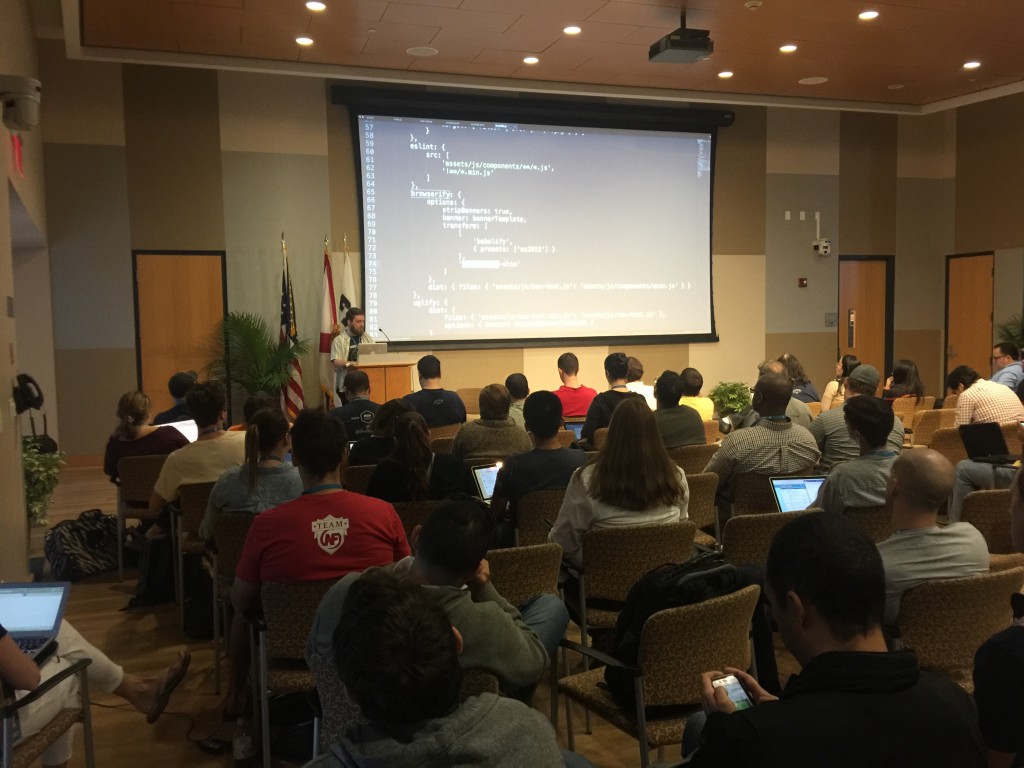 Our speaker call closed just before WordCamp US, but when Matt Mullenweg gave the “homework” to over 1800 in attendance to “learn JavaScript deeply” I instantly knew WCMIA had to make an effort to put that into our schedule. With the speaker call closed, we located those who already applied with their JavaScript sessions. Then I immediately reached out to Zac Gordon and after a little conversational arm-wrestling got him to come down as a speaker (here’s him talking about it to DradCast). This would be a perfect time to also locate additional local speakers, and we found them in he form
Our speaker call closed just before WordCamp US, but when Matt Mullenweg gave the “homework” to over 1800 in attendance to “learn JavaScript deeply” I instantly knew WCMIA had to make an effort to put that into our schedule. With the speaker call closed, we located those who already applied with their JavaScript sessions. Then I immediately reached out to Zac Gordon and after a little conversational arm-wrestling got him to come down as a speaker (here’s him talking about it to DradCast). This would be a perfect time to also locate additional local speakers, and we found them in he form
Once we officially announced the “Learn JavaScript Track”, momentum picked up. Josh Pollock came on board, and did an excellent job with two talks at the event.
The event itself I would call a success, although i knew WCMIA could have done more if we had more time to plan it. The track had great intro talks on AngularJS and React – and even at one point over 150 people were creating their first React component by following along with the speaker. We did get some feedback on the track in general that I generally would agree with. Again, if we had more time to plan… which is funny because we had almost two months worth of planning but in my mind for designing a new “track” like this us at WCMIA like more time than that. But the big question – will we have the same track next year – is still open to debate. While focusing on JavaScript is a sound investment in the future for generally any WordPress developer, there are other topics and areas I know we can spend more time to look into deeply. We’ll have to see what the state of things are as we approach the latter half of 2016.
I really do hope some camps in 2016 have a similar track to our “Learn JavaScript Deeply” track. One or two sessions on React or JavaScript aren’t really enough to cover things for today’s developers. Not every camp can – or probably should – but would like to see this carry forward.
The Workshops
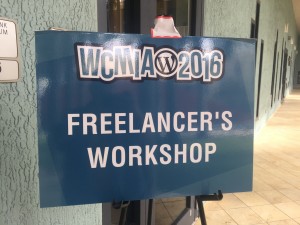 I just wanted to briefly comment on our Friday workshops. This is our second year having THREE workshops on Friday and we easily broke attendance records for that day. We had the largest WordPress beginner’s workshop that I think we’ve had (outside of maybe the one we had at a hotel ballroom many years ago which we nearly had 200) – more than 160 people came, and filled almost every seat in the room. We even had high-school students take a “field trip” to specifically come to the workshop. Our BuddyCamp – with John James Jacoby (a faithful leader of the event for years), Carl Alexander, Rocío Valdivia, and a special ending with a Skype call with some of the BuddyPress Core Contributors… was fantastic. It was the smallest workshop of the three, but it was also the most intimate and fun from what I could gather.
I just wanted to briefly comment on our Friday workshops. This is our second year having THREE workshops on Friday and we easily broke attendance records for that day. We had the largest WordPress beginner’s workshop that I think we’ve had (outside of maybe the one we had at a hotel ballroom many years ago which we nearly had 200) – more than 160 people came, and filled almost every seat in the room. We even had high-school students take a “field trip” to specifically come to the workshop. Our BuddyCamp – with John James Jacoby (a faithful leader of the event for years), Carl Alexander, Rocío Valdivia, and a special ending with a Skype call with some of the BuddyPress Core Contributors… was fantastic. It was the smallest workshop of the three, but it was also the most intimate and fun from what I could gather.
Our new workshop – Freelancer’s Workshop – was a huge success in every sense of the word. It’s probably been overall the most praised part of the entire three day event as of now via our feedback and surveys. We had over 190 tickets purchased and we’ve concluded about 170 showed up. We’re not sure if we are bringing back this workshop next year – but there is certainly a need in our local community for information that freelancers can use and appreciate.
The Survey
About a week after the event, we opened up our post-conference survey. So far, the results have been fantastic and on par with what we’ve come to expect (we’ve been doing WCMIA for over eight years now). Here’s our general, first question results on the overall WCMIA experience:
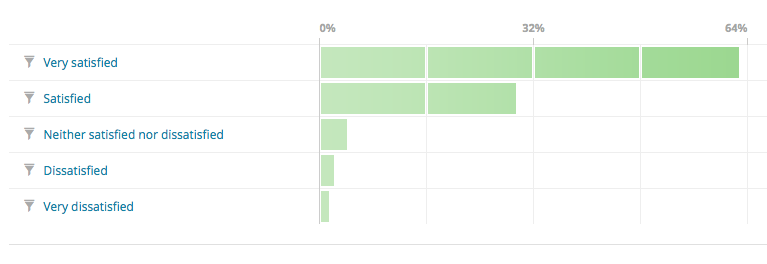
Now if you’re like me, you would notice that over 93% were happy with the event. Add in the “neutral” percentage you nearly have a “success” rate of close to 97% of those surveyed. But then if you’re like me you’ll notice quickly there was 3% that weren’t so happy. In reality, this amounts to literally a handful of people. This is fine to us – when you plan a 800+ person conference, you are bound to get people who didn’t like how something went. Although it is interesting how someone gives the worst rating for a single problem sometimes – anyone reading one-star reviews in the Apple app store or Amazon might understand that. But often their feedback is legit – maybe there was something we did wrong or could have done better (see any mention of “what went wrong” above). But while we take all feedback seriously (despite some joking around on Twitter), there are some “constructive criticisms” that you have to consider on a relative scale. For example, the one person who marked down WCMIA worth the worst rating was really doing it because of one speaker… a speaker who was actually FILLING IN FOR ANOTHER SPEAKER THAT CANCELLED LAST MINUTE. Even if that fill-in speaker wasn’t doing a great job, i’ll leave that for you to judge for yourself where you would put that on the “scale of things that can be marked poorly at WordCamps”.
There was constructive criticism on things we already knew, but it was helpful to confirm a few attendee noticed areas where we already knew need a little bit of improvement. And people caught things that were – as far as i knew – new. Which is helpful. But overall comments were relatively minor compared to disasters like running out of food or no available parking or something on that level.
But why do i share this? Because i think some people only see the good things that happen at events like WordCamp Miami but should be reminded that every event has it’s misadventures and flat out mistakes. Luckily most of the people who are reminded of this realize that nobody is perfect and plus WordCamps charge around $35 a ticket. Meaning – hey, complain if you want but it’s not like we’re charging hundreds of dollars for a ticket like many other tech conferences do (that’s not to say they shouldn’t – the point is you’re getting so much more value). Some have suggested that maybe WCMIA has spoiled it’s attendees in past events. That’s possible, but as I wrote recently we don’t stress ourselves to outperform for our attendees. We will say no to things that we don’t consider proper for the event.
Also interesting that so far none of those who gave a rating below “very satisfied” offered to help in future events.
So far the rest of our survey has been informative and for the most part made organizers smile. Not a surprise most attended Saturday, but we again had the largest turnout for Sunday (also remember kids haven’t taken this survey).

Also asked was the “best part of the camp”. This was a little unfair as it was a SINGLE selection. Results were the same as previous years – sessions and networking are why people come to WCMIA for the most part:
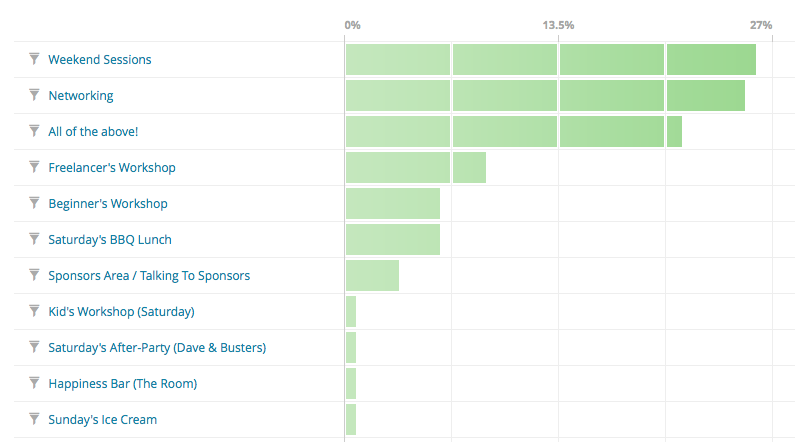
The same people who thought the event was good or great thought the venue was also good or great. There’s not much WCMIA can do about it’s venues, and currently unsure what areas the few people thought “could have been better” but usually it involves parking or not being able to find bathrooms.

We asked what TWO THINGS would attendees like to see next year. The swag response you almost immediately throw away in my opinion. It’s interesting that “Livestream” came in second (we should probably open up the survey to those who watched the livestream next year – by our account at least one hundred were watching the livestream at a particular time).
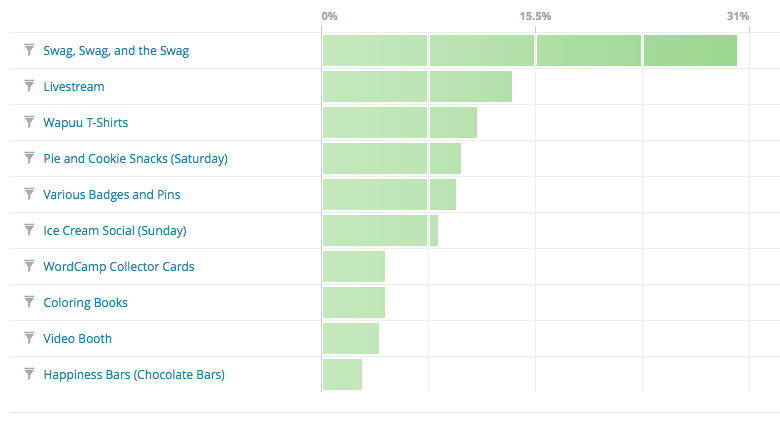
We asked attendees what changes or new things we should try next year. We got alot of varied responses – nothing that was common or popular. Some feedback was the same we get every year – for example people wanting more power outlets (even though we sent a note to all ticket holders to make sure they bring extra batteries and fully charged devices). A few people wanted a DJ at the after-party – some told us never to have one. Some people wanted a new after party location – which is tough when you have to host 300 people… and personally, the after party to me is about networking and food more than anything else and Dave and Busters nailed that again this year. Some people wanted to leave their kids off at the workshop while they go to sessions – we specifically made it clear we weren’t running a daycare and honestly even if we did bring in professional daycare services (which i’ve seen a camp or two attempt) i wouldn’t want to be responsible for other’s kids. Overall though the suggestions will be taken and considered as we plan WordCamp Miami 2017.
A comforting statistic – and something we needed new to the WordCamp Miami survey. Asking people if they would like to help next year. 1/3 surveyed said yes!

Future Dates
Unless something interesting happens, assume WordCamp Miami will be in February 2017. We hope to officially announce dates later this year.
Conclusion
Written over 5000 words on WordCamp Miami, I could go on for another 5000. Even though it’s been weeks since the conference, organizers are still putting together lists of what we’ve learned and already what we are planning to do differently next year. We don’t release alot of these thoughts to the public, although we mention some to those to other WordCamp organizers who ask.
I want to thank FIU for being the host venue this year, and among many FIU people Anthony Miyazaki and Nancy Richmond for their assistance.
And a final thank you to all those that support WordCamp Miami. Sure, it’s the official volunteers and organizers… but many people actually approach us asking us to help that are OTHER WordCamp organizers or entire companies. It’s amazing how much non-local support we get. And to each and every attendee who is patient and understanding and realizes that WordCamp Miami – even though it’s bigger than previous years – is still an event that’s put on purely by unpaid volunteers.
See you in 2017.
